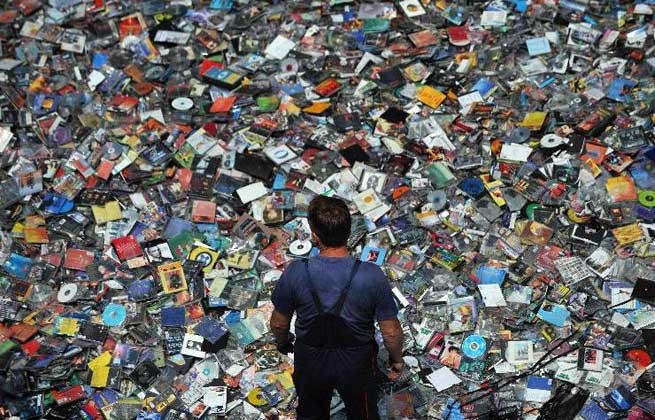
Arrogance and personal interests of individuals, at the expense of the Serbian citizens
Public Service of Serbia - your right to pay their debts
“What I've started - you carry on!
What we owe - you repay!”
Jovan Jovanović Zmaj, “Bright Tombs”
(Famous Serbian Poem)
It was hard to believe that the famous verses of Jovan Jovanović Zmaj, almost 140 years after their creation, would describe accurately the way the Public Service of Serbia operates in the first decades of the 21st century. Ran firstly by Aleksandar Tijanić, and then Dragan Bujošević, two former friends and close associates from the time of the weekly newspaper “The European“, RTS became a synonym for non-transparent business, careless abuse of public resources and irresponsible squandering of Serbian citizens’ money. The business policy, once established by Tijanić, characterized by the accumulation of millions worth of debts, protection of a few privileged and non-payment of legal obligations, is faithfully continued by his old associate Bujošević. Although it is possible, moreover probable, that Bujošević does not know how the institution entrusted to him works, this fact cannot reduce his responsibility for the consequences of an unlawful business which, in the form of enormous debts, Bujošević will leave as inheritance to his heirs at the position of the first man of the Public Service of Serbia, which will ultimately be paid by all citizens of Serbia.
Da li je Javni servis Srbije postao "dostojni" naslednik uličnih pirata?
Has the Public Service of Serbia become a "worthy" successor of the street pirates?
Until just a few years ago, the streets of Serbia were flooded with improvised stands where they sold discs with pirated software, music and video content. In the meantime, the state had began to apply the law more consistently, owing to which this type of piracy was largely eradicated, and huge amounts that went into gray economic currents were once again brought back into legal frameworks, which created the growth of the creative industry, which is one of the fastest growing industries and it makes 4.6% of the gross domestic product of Serbia. Due to the increased payment of taxes and the creation of new jobs, the state, but also all citizens of Serbia, benefited from suppressing piracy. In the meantime, technological opportunities for suppression of Internet piracy have significantly improved which made it very difficult and even prevented this type of illegal sale of another intellectual property.
Nevertheless, although the lesser-minded observer could today think that with the elimination of street and internet piracy in the field of copyright and related rights has finally been restored a complete order and respect for the law, there are still many problems and obstacles in practice in this area, as in the sphere of the legal solutions themselves, which are not registering fast enough innovative technological changes, as well as in the application of the law itself. Thus, many participants, whose copyright and related rights are protected by law, face numerous challenges every day, starting with the excessive power of individual broadcasters who abuse their dominant position in order to impose their will on other players on the market through unsatisfied relationships in individual organizations in charge of collective caring about copyright, to the inefficiency of the courts in resolving the disputes arising, which is followed by the lack of specialization and equal jurisprudence in this field.
In order to detect and highlight key issues in the field of copyright and related rights, which Serbia will have to eliminate during the EU negotiations under Chapter 7 in the next few years, the Media Network The Antidot has done extensive research on this issue, which has not been sufficiently addressed to the general public. During several months of research, Antidot addressed questions to almost all key collective participants in the field of copyright and related rights, our co-workers conducted a dozen conversations and interviews with relevant subjects, and dozens of people who appear in the world of creative industries as carriers of authors and related rights have been contacted.
.jpg)
At a time when EU members and developed countries accept copyright compliance as an unquestionable civilizational heritage, carriers of these rights in Serbia generally warn that the leaders of the Serbian public service, in charge of applying and respecting intellectual property, have for years become its biggest usurpers in Serbia. Thus, due to systemic disadvantages that generate a lack of accountability and transparency in the operation of Radio-Television Serbia (RTS), this institution has become the biggest obstacle in the practical application of legal norms in the field of respect and protection of copyright and related rights.
Due to the long-standing irresponsible rejection of the RTS leaders to respect their legal obligations, the outstanding debt that according to the copyrights of that media company had towards SOKOJ, at the end of 2014 increased to incredible 919,000,000 dinars, i.e. over 7.5 million Euros.
Under the threat of a lawsuit whose realization would almost certainly have pushed this media house into financial ruin, in February 2015, the management of RTS agreed to sign an agreement with SOKOJ, by which a debt of 7.5 million Euros has been reprogrammed by having agreed to pay it in 60 equal installments.
 - Copy 1.jpg)
In spite of the bad experiences with debts towards the SOKOJ organization, the leaders of the Public Service brought the RTS again into an identical situation, in such a way that after January 1, 2016, their obligations towards the Organization of the Serbian Phonogram Producers (OFPS) and the Organization of Collective Exercise of the Rights of Interpreters (PI) arbitrarily began to pay at several reduced rates. According to the Antidot's knowledge, due to such behavior, the debts of RTS towards these organizations have reached an amount of over 1,000,000 Euros, which could additionally be increased if they are charged by court, which will ultimately be paid by the citizens and taxpayers of the Republic of Serbia.
Representatives of Collective Organizations for the Protection of Copyright and Related Rights unanimously warn that in all EU Member States, as well as in the countries of the region, public services pay fees to collecting societies, such as SOKOJ, PI and OFPS, in the name of copyright and related rights in addition to those from marketing, they are accounted for and received from taxes and revenues from the budget. Representatives of collective organizations point out that RTS is the only media institution that ignores it and pays fees according to revenues that do not include budgetary benefits. Otherwise, problems with RTS begin in the period when this institution was led by Aleksandar Tijanić, and it is symptomatic that the same people deal with the topic of copyright and related rights in the framework of RTS as in the time of Tijanić, which is why an identical pattern of public service behavior is not too surprising when it comes to this issue.
Although its failure to pay RTS justifies by the absence of a mutual agreement that would result in the signing of an agreement that the institution considers to be the basis of its obligations towards collecting societies, the law states that paying the fee for broadcasting phonograms is a legal rather than a contractual obligation. A prospective agreement concluded with collective organizations does not constitute the legal basis of payment, but only the type of record of the broadcaster or user regulating the method of payment, prospective benefits for the user as well as other mutual relations.
As a consequence of such a practice, due to non-payment of its contractual and legal obligations, partly in the field of copyright, performance and production rights, RTS, in the name of the lost court disputes in 2015, had to pay a sum of as much as 1,000,000 Euros (123,424,000 dinars).
This amount reached 1.5 million Euros in 2016 (184,746,000 dinars), and similar practice continued in the current year, 2017. Although the RTS claims that the share of verdicts rendered for violating copyright and related rights in those amounts is "minimal and negligible", the amounts that are allocated in that institution for lost court cases indicate a very widespread practice of irresponsible behavior that is reflected in the failure to pay contractual and legal obligations, in the end, to transfer the price of this irresponsibility, which annually reaches millions of Euros, is borne by all citizens of Serbia.
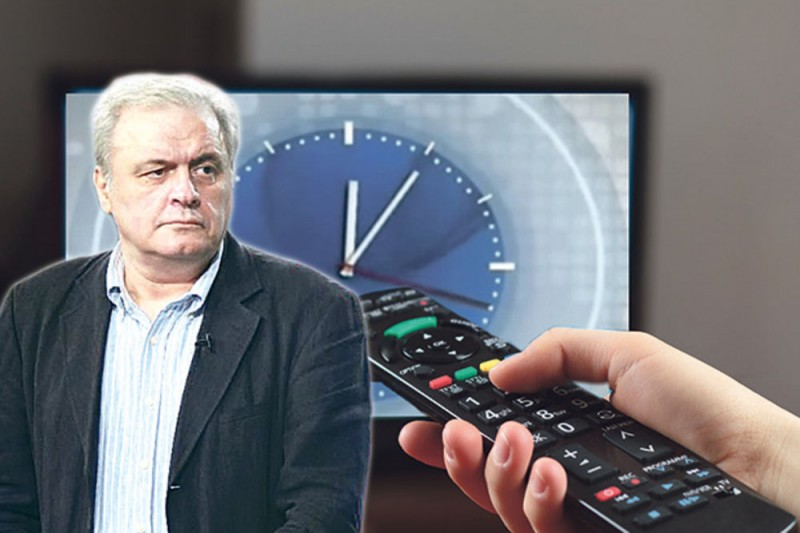
In spite of the enormous amounts paid by the citizens of Serbia for unnecessarily caused disputes and the associated court costs, RTS's top executives in their annual reports, in the part relating to risk management of future business, regularly estimate that "potential outflows from negative outcomes of litigations will not have materially significant effects” on the annual financial balance of that media institution. Thus, as of December 31, 2014, the RTS legal service recorded that court proceedings with damages in the total amount of almost 4 million Euros (474 million dinars) were conducted against this media institution, not including the effects of possible default interest. A year later, on December 31, 2015, there were disputes in the amount of over 3 million Euros (379 million dinars) against the RTS, while in the report for 2016, the value of disputes against RTS is not mentioned.
In all three cases, the assessment of the management of the Public Service was the same - that it was a matter of disputes that would not cause serious costs, during 2015 and 2016, the outcome of these disputes cost the RTS, i.e. Serbian citizens as much as 2.5 million Euros. According to independent auditor Žarko Mijović, from the auditing company Delloitte, who in his report warned that on the basis of the available documentation, he was not able to "fully believe in the stated assessment of the management of JMU RTS" by indicating lump-sum and unfounded estimates.
In accordance with the prevailing practice that operates within the Public service system, which is a kind of state in a state, practically beyond effective control in terms of costs and business, in this case, there is no responsibility of those who unwillingly, without any delay, waste money that they take from the pockets of taxpayers.
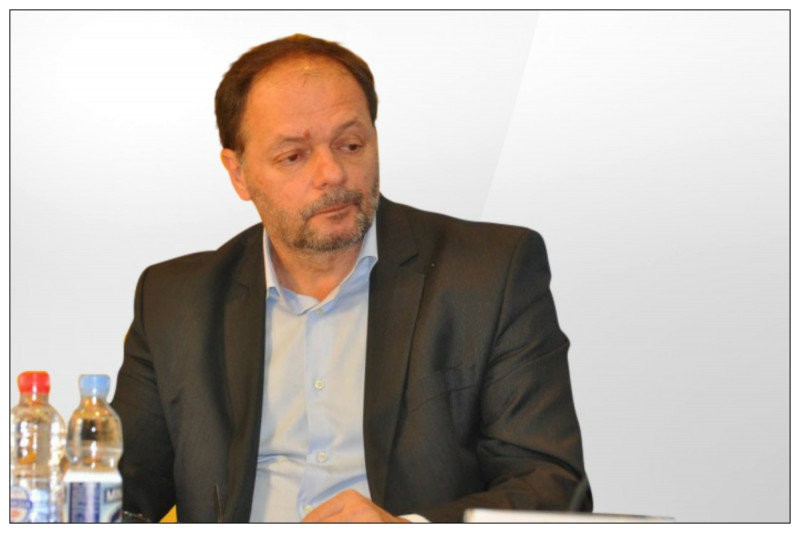
According to the documentation received by the research team Antidot, in spite of the fact that, for many years, by failing to pay their legal obligations in practice, they obstructed the implementation of the Law on Copyright and Related Rights, which inflicted direct damage on both the creative music industry and the citizens and the budget of Serbia, RTS continues to seriously violate copyrights today - this time by unauthorized uploading of content to its YouTube channels, which, according to everything, was unlawful, and the charges for it, without tender, were left to the Bulgarian provisory company KVZMusic, which charged the Public Service of Serbian Citizens for that service at first 30%, and according to the 2016 annex, 20% of the total amount collected.
Although in connection with the procedure for concluding a contract with KVZ Music and placing content on its YouTube channels, the RTS said that this institution was not formally and legally obliged to announce the tender for the signing of the contract, since "it was not a purchase of goods or service, but the realization of income in which the partner participates in the share of some of his services", this work is essentially an agreement on the purchase of provider services, which differs from the usual only according to the specific modality of payment, which is why it is subject to the provisions of the Public Procurement Law.
Instead of serving as an example and precede everyone in the respect of copyright, the RTS in this case went to completely opposite extremes by violating the copyrights of certain authors by broadcasting work in a way that is unauthorized and, illegal, giving to the foreign company a part of the revenue that, on the other hand , is replaced by the fee paid by all citizens of Serbia - from TV subscriptions and from the republican budget. The contract with the Bulgarian company KVZ Music was signed on November 7, 2014 by the then acting general director Nikola Mirkov, while the annex to the aforementioned contract, which envisages the extension of its validity, was signed by the current Director of the RTS Dragan Bujošević at the end of 2015.

The fact that something is definitely not right with the mentioned contract is indicated by the circumstance that RTS leaders have been given three years to make this act transparent, and its contents accessible to the public. Although the publicity of the work, management and decision-making of the RTS is strictly defined by the Law on Public Services, it took more than three years for the managers of the media to disclose in May this year to the public the content of the secret contract which was signed outside of the lawfully envisaged procedure, with the provider KVZ Music on the monetization of content broadcast via a digital service for exchanging YouTube video content. The RTS issued the contract only after the third binding order of the Commissioner for Information of Public Importance ignoring the legitimacy of interested citizens and business entities to make this part of the public service operation transparent. Although on the basis of this controversial contract and information on the amount of revenues generated, by sending emails and making telephone calls, we have repeatedly tried to obtain answers from KVZ Music and its authorized people - director Kiril Zdravkov and the person in charge of the company's affairs in the territory of former Yugoslavia, Petar Boračev, until the moment of publishing this text our efforts have been completely ignored by the people from that company.
In addition to violating the Law on Public Procurements by concluding an illegal job, RTS publicly and falsely declared itself as the sole holder of all rights related to the content, which prevented the payment of the corresponding compensation to the real owners of those contents. The fact that in the case of commercial exploitation of content via YouTube channel RTS directly violated the Copyright and Related Rights Act, it was confirmed by the final verdict Pž-579/2016 dated 23 August 2017, filed by the Appellate Court in Belgrade on a lawsuit filed by “Tin Drum Music” against RTS for violating the copyrights of the author and performer Ana Stanić and Antoni Pušić (Rambo Amadeus). By that verdict, RTS is explicitly forbidden to put into circulation through YouTube service the work that was the subject of this lawsuit in the future. Although the RTS violated the copyright and related rights of many other authors, performers and producers of phonograms in the same form, the media continued to follow the practice of disregarding the aforementioned rights. On the other hand, the RTS reported that they also launched a large number of disputes because some other record companies illegally claim catalogs belonging to PGP RTS.
Part of the problem in this area is partially in the still unexplained ownership relations in certain phonograms that the performers have without authorization (since they are not the owners of the phonograms but only the bearers of the performance rights) contractually transferred to their publishers, which resulted in the problem of the unlawful possession of phonograms by those to which they do not belong to. This problem was further enhanced by the lack of privatization of former socially-owned record societies in whose assets, at the time of sale, there were no catalogs in their possession, so that later, they wondrously appeared in the ownership of those who in essence did not pay them. Due to problems and unexplained ownership-related relations on particular catalogs, OFPS has initiated a procedure for establishing ownership of phonograms, which will, to a large extent, legally resolve this issue, which will also greatly facilitate the courts in those cases that have come to court settlement.
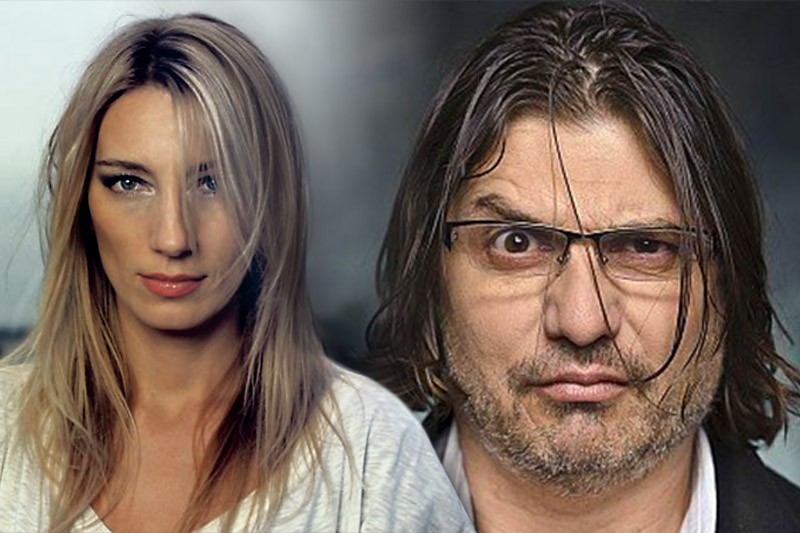
In relation to the placement of the content of the public service through YouTube, it is a practice that significantly differs from the practice of public services within the EU, in the statement for Antidot confirmed Natalija Gorščak, deputy director of RTV Slovenia. In answer to the questions we delivered to this media house, Gorščak explained that the Slovenian public service, in accordance with the prevailing European practice, exclusively places its contents on its channel http://4d.rtvslo.si/ while they broadcast on the YouTube channel exclusively announcements of emissions and promotional content.
"Otherwise, in the opinion of most public services in Europe it is questionable to put content that is produced with public money on the platform, which is commercial and generates profit, in the first place to its owners, who did not invest anything in that production. RTV Slovenia pays royalties for both broadcasting via television channels and for later broadcasting via its digital channel via the Internet. Since we do not place our programs on YouTube channels, we do not have the need to sign any contracts to monetize such content with the provider companies." Gorščak pointed out.
Although, unlike the management of TV Slovenia, their co-workers from Croatian Radio Television (HRT) did not provide answers to the questions we sent them by mail; by simply inspecting YouTube channels of that TV station it can be established that it also applies practices that are almost identical to other public services within the EU. Show which are broadcast on Croatian public service channels are placed on HRT servers, while only announcements and promotional materials are published on YouTube channels.
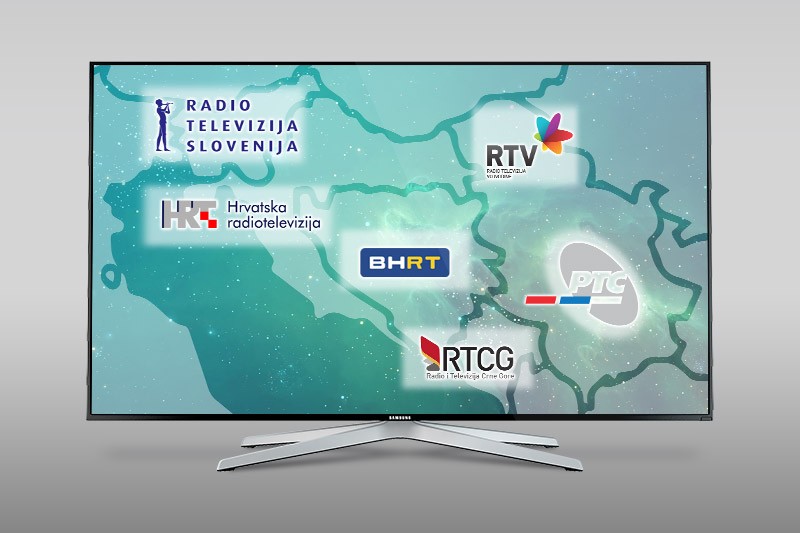
The research team of Antidot has also come to the proof of numerous other machinations by some RTS officials, which are related to this field. Thus, by electronic monitoring, which in 2015 for OFPS was performed on a random sample of the television and radio program of the Public Service, it was established that this institution delivers totally inaccurate lists (so-called shirts) of music tracks which are being played within the program of RTS and Radio Belgrade, that are released to collecting societies in the field of copyright and related rights. Thus, during the monitoring it was established that RTS expressly favors its musical production of PGP, whose mere existence is a clear conflict of interest and unfair competition in relation to private publishers. Given that the PGP is not a separate economic entity, but an integral part of the RTS, that institution is in the position to simultaneously perform both production activity and national broadcasting, which, at least when the public services are concerned, constitutes an unacceptable situation totally unknown in the EU countries and developed world. It is important to emphasize that the PGP's publications and authors for their promotion receive a completely free marketing space on the RTS programs, which represents an economic grant between fundamentally different entities, which evades the state tax radar and payment of taxes for economic transactions.
In the period of monitoring, PGP was represented with 89.5% in RTS programs, while all other foreign and domestic publishers were represented with only 10.5%, indicating that the public service was strongly favoring its own production.
In addition, the data obtained by monitoring indicated a systematic reduction in the number of views and participation of music in the overall programs by RTS with a clear aim that in this way the amounts also be reduced that the media has to pay on the basis of copyright and related rights. It has also been determined that the authors have been disproportionately rewarded by fictitious presentation of a larger number of appearances for individual authors so that when the funds within the framework of SOKOJ, which also indicates a possible corrupt element within the Public Service and its production company.
The accuracy of the tracked shirts is fixed at only 4%, which represents classical theft, since the Public Service is obliged by law to give accurate lists of released music. Due to extremely inaccurate and arbitrary shirts, which otherwise serve as a basis for the distribution of funds within organizations for exercising the collective rights of authors and holders of related rights, some of them have begun to apply software that real-time monitor all programs of large broadcasters, thus allowing the formation of so-called digital shirts in which no arbitrariness or machination can be made when composing them.
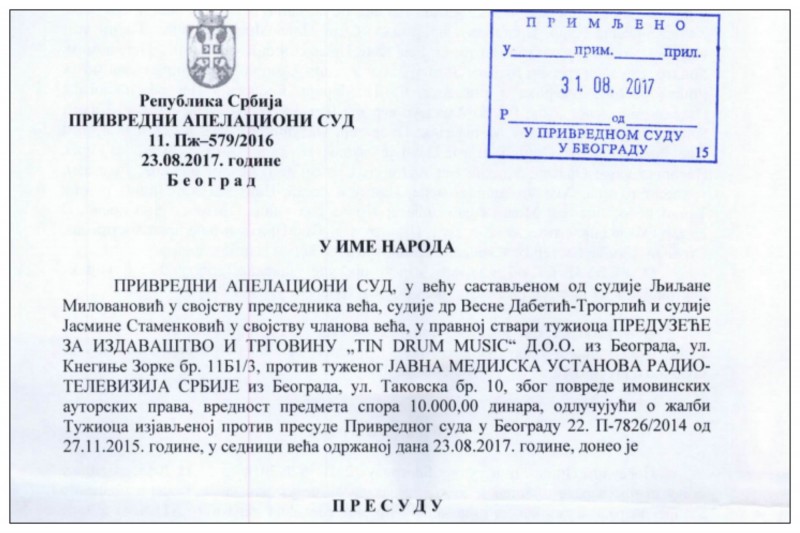
On the other hand, in the responses submitted to the Antidot, RTS states that the shirts are filled in according to a precise procedure, which is defined by the instruction that the internal RTS normative act was adopted in consultation with the collecting societies. "In practice, there were sporadic objections to the contents of certain shirts that were solved by checking the broadcast program and prospective editing of the shirt," it is stated in the agreement of the Public Service.
According to the findings of the Antidote, due to dissatisfaction with the high degree of arbitrariness and inaccuracy of the shirts that compose broadcasters, in which the RTS is leading, collective organizations (SOKOJ, PI and OFPS) are negotiating with the Spanish company BMAT that monitors and recognizes broadcasts of music and phonograms in TV and radio emitters. The practice that this Spanish company does in almost all of Europe for related collective organizations will soon be applied in Serbia. Negotiations on the monitoring and recognition of broadcasted musical works and phonograms are concluded at the same time with some companies from Serbia, Croatia and Slovenia dealing with this type of services. The introduction of monitoring of TV and radio programs will have significant effects in terms of more accurate recording of broadcasts of music and phonograms, and thus more equitable distribution in collective organizations towards right holders.
Due to the continuous and prolonged violation of copyright and related rights by the Public Service in the digital sphere against RTS, general director Dragan Bujošević, Bulgarian company KVZ Music and Kiril Zdravkov, the responsible person of that company, Serbian publishing houses "Tin Drum Music" and “Mascom "submitted a criminal complaint in June this year to which the Public Prosecutor's Office in Belgrade has so far failed to respond.
Apart from the unauthorized exploitation of the copyrighted work and objects of related rights by the RTS, the submission of a criminal report was also contributed by the brutal behavior of managers and institutions who, abusing the public resources and powers entrusted to them by the citizens and institutions of the Republic of Serbia, performed undue pressure and retaliation against authors who have decided to protect their rights by judicial means. Thus, for example, by the decision of the Public Service managers, well-known domestic author Ana Stanić was banned for four years from the programs of that television, and only because she asked for the protection of her copyrights by court. Although she recently managed to exercise her right through the court, because of the traumatic experience she had in dispute with RTS, Ana Stanić did not want to talk about the whole case for Antidot. For the fear that they may get on the bad side of the Public Service managers, well-known authors Marina Tucaković, Damir Handanović, Vlada Georgiev and Željko Joksimović were not in a position to discuss this topic.
Wishing to receive answers from authorized RTS people on all disputed issues, Antidot sent a request for an interview to the general director of that institution Dragan Bujošević, who, for that occasion, authorized the officials responsible for the field of copyright and related rights - secretary general Stanislav Veljković and his assistant for innovative technologies Zlatan Begović. Although due to the slowness of the system within the RTS itself, the answers from that media institution were obtained only before the publication of this text, and only to the first of the two groups of questions that we wanted to make, the answers received are published in an integral form below along with other interviews we have done with interested participants in the field of copyright and related rights.

Nešović: RTS in a systematic war against the creative industry in Serbia
The initiator of the lawsuit, which resulted in the adoption of a final verdict in October 2017, by which the RTS was convicted of unlawfully using content on its YouTube channels, which practically put it out of the law all what the Public Service is doing on that digital platform, the owner and director of the production houses "Mascom"and "Tin Drum Music" Slobodan Nešović pointed out in an interview with Antidot that RTS consciously and deliberately violates copyrights on a daily basis, which is reflected in many segments, since this broadcaster does not pay royalties or pays them at the lowest tariffs systematically destructively works on the entire creative industry in Serbia.
"The second part of the problem is that the RTS claims a phonogram catalog that is not their property, which is the reason we have won so far three court cases. They had the right to issue certain recordings, but they claim phonogram records and earn on them without any basis, without paying any tantiem to the right owners. The third problem is that RTS rises on YouTube its broadcasts with full content in them and takes 100% of the income that is not done nowhere in the world, especially when it comes to Public Service. Thus, for example, when someone sings his own song in an RTS show, they later earn through YouTube exploitation, they earn what lawfully belongs to the author, the artist and the publisher of the song. There is absolutely no difference between this behavior of RTS and those who fall into someone else's apartments and take what is lawfully not theirs," said Nešović.
Emphasizing that such behavior is clearly prohibited by law, our interlocutor added that in this case, the special problem is the lack of responsibility in the conduct of the Public Service, which should be an example of respecting the law, not in its violation. "The public service should be the one that stimulates the development of the creative industry, not systematically destroying them. Plus, RTS, as the owner of its own production, presents unfair competition to the private sector, which is absolutely unacceptable. It's like if the BBC had its own publishing house, which is unthinkable. For the private sector, the public service is completely closed, they favor their production and we cannot broadcast our music on their channels. Even when they are defending why they are not paying anything, they still emphasize that they only play their own music on the Public Service programs, which on the one hand is not true, and on the other hand this is an argument at the level of that in year '47 and Informbiro. These are civilizational incomprehensible things beyond the borders of this country that no one would believe that it really is happening in 2017," Nešović points out.
He pointed out that RTS programs have a noticable favoring of PGP RTS, which is not in line with the situation in which the public service is financed by the money of the citizens of Serbia, and in which RTS and PGP as an emitter and a production company are actually one and the same legal entity." You finance the production of new songs by the money of the citizens of Serbia, besides that you advertise them for free and the question is why they are more privileged than others. For example, there is the case of Pink which is a separate legal entity in relation to City Records that invoices mutual outcomes, and they pay taxes on them, and although they are related companies, Pink also broadcasts foreign music on its channels, not just the City Records music. In the case of RTS, there is no payment of taxes on economic giving and transfer of marketing space to PGP, "said Nešović.

In addition to Nešović, more than one interviewee confirmed, the management of RTS previously used the arguments for lack of funds to settle this type of expenditures or, worse yet, how they are doing a favour to authors and interpreters and also do their advertising by broadcasting them on their channels. "Imagine this kind of abuse of a dominant position, a national resource in the form of a frequency, where they seek for their rights that represent their property like real estate, car or anything else. The whole situation where that marketing time, which belongs to all citizens of Serbia on the frequency of the Public Service, use and resell the individual, in return for their copyright, has no sense. The point is that people with RTS act arrogantly, they have many faults in this area, which, after all, is also reflected in a well-known digital distribution contract that was signed without a tender, secretly with the Bulgarian KVZ, and whose contents are not clearly visible what rights they have given to a private foreign company, which the repertoire has transferred to it, as well as many other key details. Through the Commissioner for Information of Public Importance, the contract is requested on several occasions to be published, which RTS had consistently ignored until May this year when it was finally publicly announced, " reminded Nešović.
As we have already pointed out, in the disputed contract in case of placing content through its YouTube channel, RTS, under criminal responsibility, has declared itself as the absolute owner of all rights - copyright, performer, audiogram, videogram, which is the case in which YouTube pays 100% of the content to the content owner on this basis. This, however, may be the case when posting home videos and private video blogs where there are no content subject to copywriting and where authors of these materials can be declared as the owners of all rights. When, on the other hand, RTS broadcasts its broadcasts through the YouTube channel and the author's musical works, in that case, the media institution cannot theoretically be the owner of all rights. In this case, the rights of authors, performers, producers of phonograms and videograms that RTS ignores, continue to raise these contents, claiming that it owns all these rights, which is a criminal offense. The public service is behaving as a state in a state that is above the law.
"People who run the RTS think that this is their private property and from that position they systematically prevent the normal development of this type of business in Serbia that is not at all small and which, according to the Serbian Chamber of Commerce, accounts for 4.6% of the total GDP of Serbia. In addition to all this, RTS has its own production - PGP RTS, which is actually money-spender for the citizens of Serbia, they do not do business positively which is why they are asking for money from people in order to record record or publish CDs there. This kind of activity would make sense if PGP would be used to encourage some content of national importance, but only under the condition that PGP would not stop the private sector's ability to adequately get represented on the national frequency of the Public Service. They, however, have some informal blacklist, and when Mascom went to court with them, they called our performers and threatened them that, if these processes continue, they will never be able to be on RTS programs anymore. This type of owning by Public service, which, in addition to the informative, should also have a stimulating role for the creative industry, is completely unacceptable," Nešović warned.
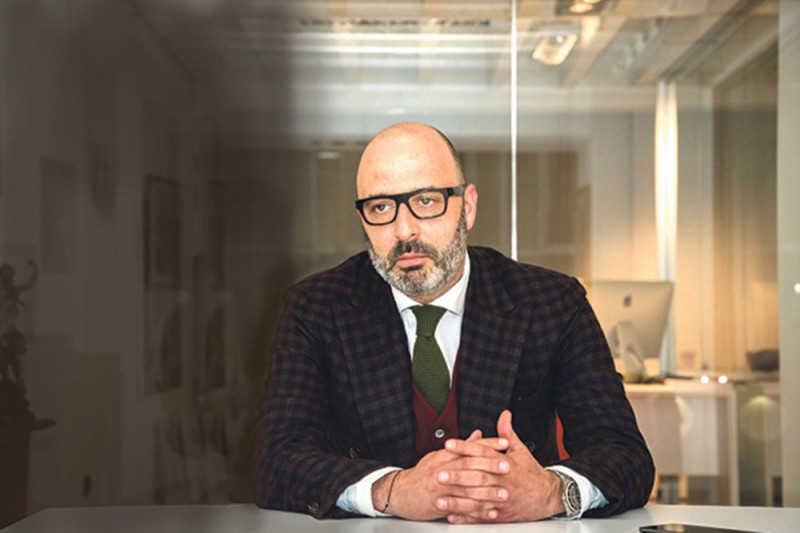
He added that in the public sphere, there is nowhere in Europe a practice for a public service to have its own production and to engage in publishing. The Public service can have non-commercial production, can record and broadcast its concerts, for example, philharmonic, so that it re-broadcasts on its program, which the BBC also does, which often licenses the private sector through the tender for the private sector that later exploits those recordings. "It is not a problem for the RTS to have its own program archive, but to enter the market and present unfair competition to the private sector; it is incompatible with the contemporary capitalism we live in. It is particularly unacceptable that in such an aggressive manner it prevents anyone else from coming out of their program other than those who create them within their production. This should not be done even by commercial television, let alone the Public Service that would have absolutely opened the doors for all market participants, not to close the door and to forbid access due to the commercial interests of several of its employees," warns Nešović.
Unlike the RTS, their Croatian counterpart - HRT has no musical production. Croatian music industry receives 50% of revenue from HRT only, while RTS in the structure of the income of the domestic music industry participates with less than 5%. In the revenues of OFPS, while paying fees on this basis, RTS participated between 4-5%, while HRT participated with 50% in revenues of ZAPRAF (organization of phonogram producers) and HUZIP (interpreters' organization). RTS, with its three television and five radio channels, is absolutely the largest user and broadcaster of music, which is why it should pay the most on the basis of royalties and copyrights. As we have already mentioned, according to the documentation that Antidot came by, the monitoring of television and radio shows that RTS by systematically reducing the participation of music in their programs actually reduces the amount of fees paid on the basis of copyright and related rights. While organizations claim that music participates in the public service program with around 27%, the management of that media company claims that this percentage is twice as low and recognizes participation of only 13-14%.
"The RTS obstructs the implementation of the law and everything that has to do with copyright and related rights. Starting from the fact that they usurp another property, which was proved in the case of Ana Stanić, Koja and Rambo Amadeus, before the competent court. We have proven that they were not the owners of the copyrights in phonograms. They had publishing rights, but they were not the original producers of phonograms and the rights holders who derive from it. We are now on the same occasion in court also for EKV. Instead of returning that property to the people to whom it belongs, they exploit it unlawfully. That is to get a parallel, like when you give your apartment to an agency to rent it for a fixed period of time and after two years they will not give you your apartment because they like to continue to rent it and take on revenue from it. In this case, the singers give their footage to RTS to exploit it for a certain amount of time, and they assume it as their permanent property, "explained the owner of the houses "Tin Drum Music" and "Mascom".
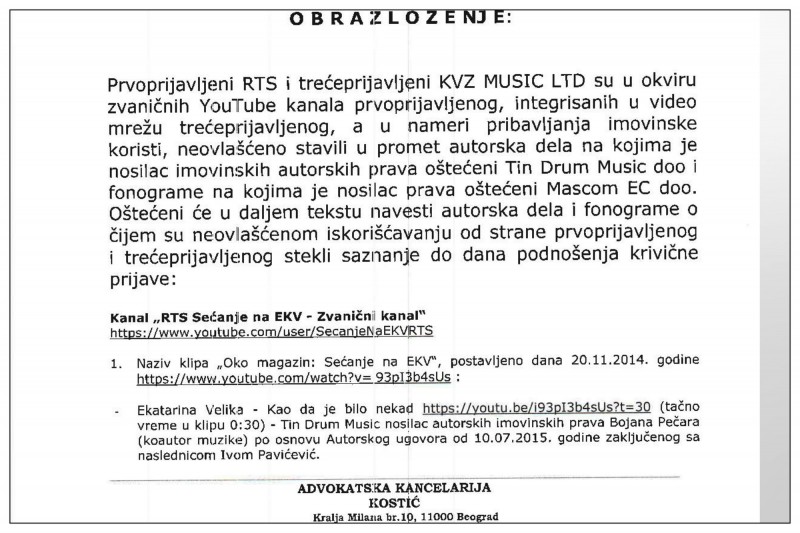
Nesovic also noted that this behavior by RTS officials is burdening the budget of the institution in several ways. "Firstly, unnecessary court costs, such as now when, according to the court order, at their own expense, in the daily Blic, they have to publish a verdict in the case of Rambo Amadeus and Ana Stanić, which they persistently avoid doing despite the final verdict. In addition, they have a PGP RTS that is a loser and for whose artificial maintenance is spent on the money of the citizens of Serbia. Also, the revenue that RTS has from illegally displaying digital content through the YouTube channel is not transparently displayed in RTS business books. They claim to have two types of funding - one from the budget, and the other from marketing while the revenue obtained from showing content on YouTube is not mentioned anywhere. On some things, the RTS has uncontested rights, such as the phono archive of the Radio Belgrade. However, what people brought to RTS to sign publishing contracts is not a phonogram ownership of RTS, which they can exploit as they like," our interlocutor points out.
Nešović added that the state should be interested in making the Public Service to begin to act legally and to give the owners the return of what it does not own, because otherwise they will be faced with a growing number of lawsuits that could seriously jeopardize the further operations of that institution .
"It's unheard of that some public service takes your video and puts it on a digital service and does not inform you about it, it does not pay you the royalties, and it does not give you a sales report. They act as if they are state in the state, think they are untouchable and so far, even courts have been benevolent to their violation of laws, but this climate is slowly changing. And it's important for us all to make it public, that the judges and the people who decide on it understand what it is about. The courts did not understand the difference between phonograms and sound carriers. The sound carrier is vinyl, cassette, VHS, while the phonogram is incorporeal, it's just the sound you hear. If one gets the right to reproduce the CD's of my phonogram, he has only got that right, and it does not imply any new right. If someone had a contract on vinyl and tape in 1988, he only has that, he cannot publish it now digitally," Nešović said in an interview with Antidot.
He pointed out that besides the negative role and behavior of RTS; problems in the exercise of copyright are also contributed by unhindered relations within SOKOJ as the largest collective rights organization. As an example, Nešović cited the problems that arose due to the fact that SOKOJ did not share royalties to the performers from digital services at all. "Deezer does not share any money with anyone, and Deezer is here for five years, since nobody has gotten anything from YouTube, they are trying to distribute that money transparently, but they did not go to the assembly now because the authors did not vote. The authors are rather uninformed; SOKOJ is obliged to inform much more their members about their activities. Their distribution plan is unclear, the papers they give us are vague, SOKOJ gets money for Serbian authors, for music that is broadcast from abroad, this is the most problematic one, and we have very little information," said Nešović pointing out the key problems that stand in the way to the full realization and protection of copyright and related rights in Serbia.
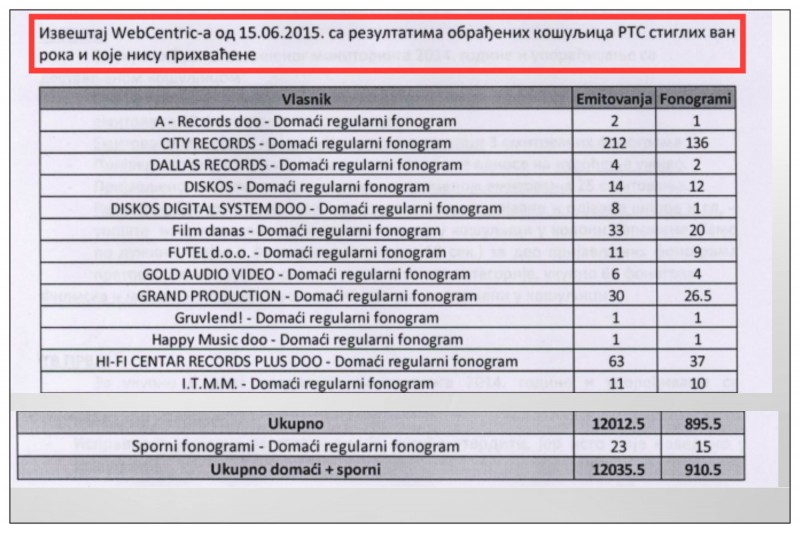
Krsmanović: Absence of responsibility and domination of corruptive elements in the behavior of the Public Service
The fact that there are still many problems in the field of copyright protection and related rights, but also that in their center there is an irresponsible and brutal behavior of certain officials and managers of the Public service, confirmed Mioljub Krsmanović, the owner of the production company Metropolis and the authorized representative of Universal Music, the world's largest major.
"Generally speaking, when it comes to the media, there should be a somewhat more balanced approach, primarily towards domestic music. In this respect, we may not be able to resent commercial media in this regard, but RTS is particularly problematic because as a public service, the whole system of copyright protection is collapsing because of it. The RTS leaders are behaving violently and they do not seem to have any awareness of the importance of copyright. We can perceive that the domination of the corrupt element within our public service is at stake and that it is entirely personal interests of individuals who in the existing system of absence of any control and responsibility implement some of their private policies. Their basic obligation is to pay compensation to authors of copyright and related rights. Here we also face the problem of the high tariff level that is within the EU principally formed in proportion to the revenues of the broadcasters. The RTS has for a long time refused to pay at a tariff that would have been generated by revenues that would include those revenues that the television receives from the budget and the fee paid by citizens. In June, a tariff was set up based on the total revenue of the Public Service, but RTS still refuses to pay. Beside the debt that was formed towards SOKOJ in eight years, this is a new example of the ardent behavior of RTS people who became a state in the state. Using the circumstance that the state in some way withdrew and renounced the influence on the RTS that became a public service, people who took advantage of positions within that system were given the opportunity to behave violently with impunity and without any responsibility," said Krsmanović.
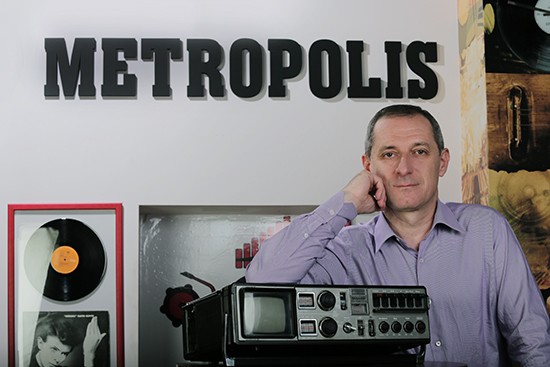
He specified that RTS, as the largest broadcaster in the country, must first pay legal fees because otherwise it threatens the entire music industry to sink completely. According to Krsmanović, unlike RTS, with the largest commercial broadcasters, discographers have no major problems in collecting their rights.
"The second major problem with RTS is in the unregulated system of the list of broadcasted works. They make inaccurate and incorrect shirts. Some members of the SOKOJ openly expressed doubts that some of the shirts were fitted for the benefit of some authors, which means that the RTS showed that something that was not actually released was released. In addition, RTS dramatically reduces the participation of music in its depictions in order to pay lower fees. There are technical possibilities nowadays to overcome this problem, as softwares have already been developed that, on the basis of the phonogram base, in real-time recognize everything that is released on television and radio programs," said Krsmanović.

As a separate segment of the responsibility of the public service, our interlocutor, who in 2015 was himself one of the candidates for the general director of RTS, which is why he is one of the better experts in the functioning of the public service system, also points to the need to more promote domestic music on the RTS channels, which is a practice in many European countries. Although he himself is a representative of foreign music company, Krsmanović believes that the policy of promoting domestic music would be particularly important for the survival of the domestic music industry, especially its non-commercial segments. "This implies that the RTS must stimulate the growth of all discographers, and not just PGPs. In essence, PGP is a textbook example of conflict of interest. People from PGP make illicit trade by influence. They literally blackmail music authors and artists whom they give free advertising, but they take away all copyright and related rights without any compensation. Someone has waived his rights in the next 70 years, from which his children could live. Thus, PGP appears as the owner of some phonograms for which there is no evidence that it organized their recording, that it invested some money in them, rented studios, etc. On the other hand, among the authors we have a large number of impoverished people who find themselves in such a situation because of the PGP policy. In addition to all of the above, the big problem is arbitrary decision-making of people from RTS to whom they want and to whom will not allow access to public service channels as if they are their private property," Krsmanović said.
As a special problem in the field of related rights, our interlocutor points to the procedure of proving ownership of phonograms. Although the law is quite precise, the problem arises in cases of former social enterprises that have been privatized in the meantime. "Part of this problem has also emerged as the legacy of an entirely different system that existed before. Recently, the issue of Croatia Records with the Jugoton catalog arose when artists who did not receive any money from music broadcast via YouTube channel rebelled. Performers therefore asked Croatia Records to prove that they owned the Jugoton catalog which they could not. This problem could easily be transmitted to us in those cases where some bands made phonograms themselves, and then they took them to PGP that stripped them of all rights. The fact that the PGP issued those works does not mean that it became the owner of the phonogram. PGP is the owner of those phonograms that were recorded in the studio of that house, but what they gained by trade by influence cannot be called ownership of phonograms. In the contemporary world, the music industry is primarily traded in catalogs, while in the case of privatization of some record companies, for example, Jugodisk, stores and equipment were sold, while nobody took care of the catalogs. This is the case throughout the former Yugoslavia. In order to clarify the situation with the ownership of phonograms, OFPS will have to initiate a procedure for determining ownership in order to avoid compensation for those who are not the owners of phonograms," Krsmanović concluded.
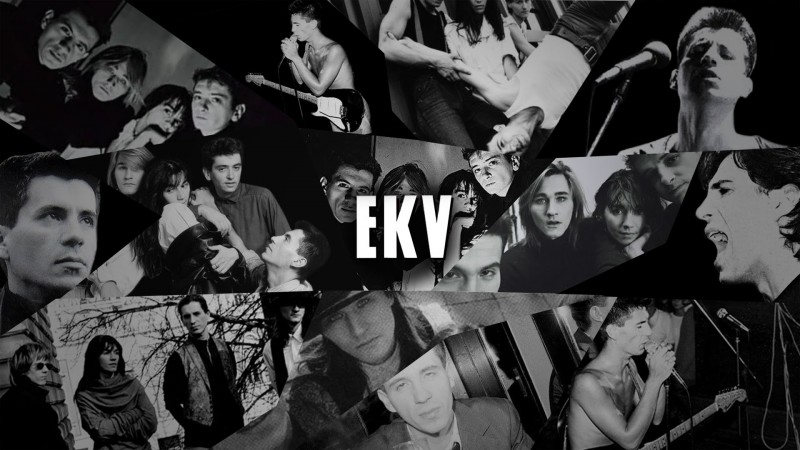
RTS: We are committed to respecting and promoting via media the importance of copyright
On the questions of the prevailing situation in the existing legislative framework in the field of copyright and related rights and its application in Serbia, written answers were sent from the Radio-Television of Serbia to the Antidot media network, signed by assistant of general director Zlatan Begović.
In the RTS's responses, it is pointed out that the regulations in Serbia are relatively good and generally in line with the normative practice of European countries. "Minor amendments are needed in order to ensure that all aspects of legal protection in this field are regulated, primarily with regard to the application of European directives, as well as in the field of functioning of services for the exchange of audio-visual content and other internet portals," Begović said.
Answering to the question how RTS in practice regulates its legal obligations in the field of copyright and related rights and how much the total annual expenditures on this basis were made in 2015 and 2016, the assistant of general direcor of RTS said that that media institution regulates its obligations by individual contracts with authors and holders of related rights and agreements with collective organizations for the protection of these rights.
"Payments to SOKOJ during 2015 and 2016, apart from the regular cost in those years, include payments based on the agreed reprogramming, which was established on the basis of the signed agreement, referring to the cost of the previous years and on all grounds SOKOJ in 2015 was paid 1.909.060 Euros, and in 2016, 2.524.406 Euros. Payments to OFPS: in 2015, were 48.2 million dinars (395 thousand Euros), and in 2016, 29.7 million dinars (242 thousand Euros). The estimated cost for OFPS in 2015: 28 million dinars, and in 2016, 28 million dinars,” Begovič revealed, adding that significant funds are paid to individual rights holders (writers of scripts, directors, actors, music interpreters and others), but that there is no aggregate statistics at this time for this type of payment.
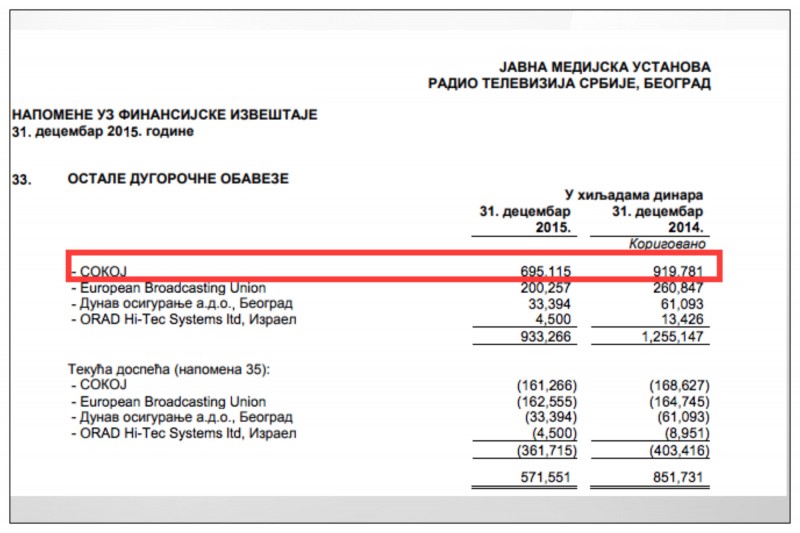
Responding to complaints by certain authors and interpreters regarding outstanding claims from RTS for public broadcasting in the field of new digital services (YouTube channels) and the ways in which the Public Service regulates the area and resolves the complaints, Begović said that "the transfer of rights to interactive making the available works and interpretations of RTS is regulated by contracts ", and when making them, a rulebook defining the share of holders of rights in realized revenues is applied. "The provisions of the Rules apply if the authors / interpreters do not have protection within their collective organizations when it comes to musical works, SOKOJ has concluded a contract with the company that owns the YouTube service. As a rule, individual interests of the interpreters, when they do not transfer all rights to RTS , are symbolic," said the sssistant of general director of RTS.
Talking about the annual net income RTS receives from monetization for broadcasting content on all YouTube channels, he said that there is no unique record within the media institution due to the "different nature of revenues from monetization of TV and radio programs and discography editions". However, Begović said that, for the 2016 year, the net income from all channels on YouTube was approximately 80,000 dollars.
Regarding the manner in which monitoring is performed and the representation of the so-called shirts which were of broadcasted content on television and radio channels within the RTS and complaints of collective organizations regarding the accuracy of these reports, Begović said that the shirts were filled according to the precise procedure defined in the instruction. "It is an internal normative act of the RTS, adopted with consultations with collective organizations. In practice, there were sporadic objections to the contents of certain shirts that were solved by checking the broadcast program and prospective editing of the shirts," said Begović.

When it comes to the number of lawsuits for fee evasion according to the Law on Copyright and Related Rights that RTS received in 2015 and 2016, Begović stated that lawsuits related to fee evasion were rare and that it was usually related to “requests about disputable application of certain elements of the contracts with authors, Related Rights holders and co-producers, that is, disputes about interpretation of perimeters and aspects of certain rights in the context of the mentioned contracts. There is no precise record on these. RTS respects rights of all authors, associates and partners, and there is no possibility of fee evasion being an intentional act of RTS according to Property Law or any other law.”
When it comes to the percentage of presence of the content produced by PGP RTS in the overall broadcast on RTS channels, in the Public Service it was stated that there was no precise record on it, or a reason to keep it whatsoever. ''In the context of RTS radio and TV program editing it does not matter if it is a musical repertoire published by PGP RTS or another phonogram producer. PGP RTS repertoire has no advantage over any other discographer's repertoire,“ said Begović.
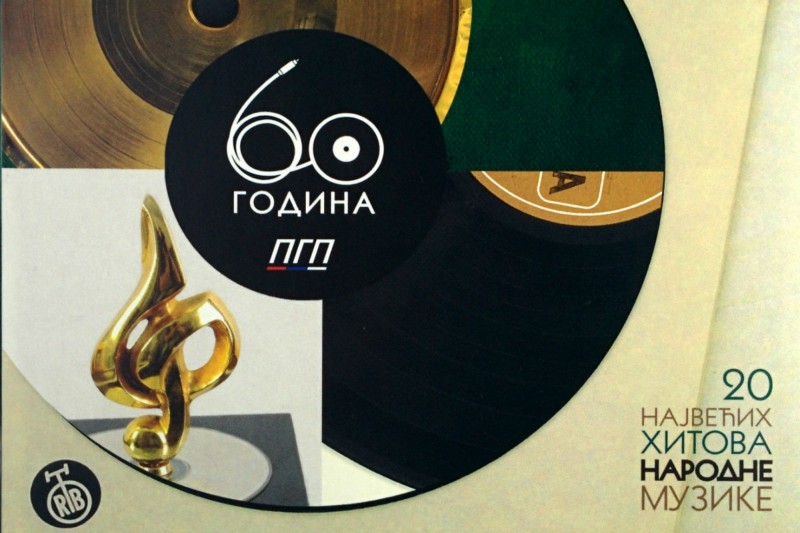
He warned that in practice there were very serious issues when it comes to copyright protection of PGP repertoire. ''This repertoire represents a national musical treasure of Serbia and it is a subject of different unlawful usage and exploatation attempts. RTS is dedicated in a fight against piracy and has a tight cooperation with Unit for Operational Technique and Countering High-tech Crime within Ministry of Interior and Prosecutor's Office for High-tech Crime. The most frequent way of violation of rights in this area is certain performers' practice to hand over phonogram rights owned by PGP RTS to other discography companies, which consequently gross an income from phonograms produced by PGP RTS, that is an unlawful property profit. It is a subject of many disputes at the Commercial Court and in some of the cases we filed lawsuits due to the mentioned issue,“ stressed Begović.
When it comes to PGP RTS balance of success in the last two years, he stated that during 2015 the PGP' s income amounted to 31 million RSD while expense amounted to 71 million RSD (as advised by the reviser, the write down of PGP inventory was done and charged to PGP expenses amounting to 33 million RSD). During 2016, PGP's income totaled in 53 million RSD, while expense totaled in 43 million RSD.
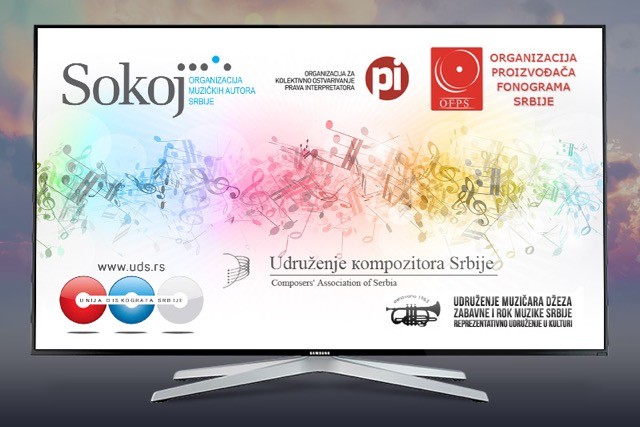
RTS assisstant director who is in charge of inovative technologies, stated that this media house recognized the constant state authorities' activities on piracy prevention which should be even more intensified together with the public subjects and media work on changing the mentality which approves of these rights violation. ''RTS being a public media service, is dedicated to copyright protection as well as media propagation of its importance for society as a whole,“ concluded Zlatan Begović in answer to the questions by Antidot Media Network.
OFPS: By fee denunciation RTS is attempting to evade paying their dues in vain
Speaking for Antidot about the practical aspects of Copyright and Related Rights in Serbia protection, Nikola Vilotić, deputy director of Organization of Phonogram Producers of Serbia (OFPS), confirmed our findings about many irregularities in this field coming from the Public Service.
Explaining the rules of distribution within collective organizations, Vilotić specifies that it is done according to the received broadcast phonograms that still aren’t digitalized, which is why OFPS monitors it from time to time on the basis of random samples. “Although the results shouldn’t be completely taken for granted, since not the whole broadcast content was monitored, but just a sample, we can certainly claim that in the case of RTS there were major irregularities. In addition, when it comes to fee calculation, we discovered that RTS reported a quite lower presence of repertoire in relation to its real presence, thus directly creating a lower fee that the Public Service paid to us. By the monitoring we discovered that the presence was not 10-15% as RTS reported, but rather 27-28%, which is why we charged them with an additional fee. They still haven’t accepted it which is why we opened negotiations in order to find a compromise with RTS, as the biggest broadcaster,” stated our interviewee.

Vilotić added that the income based on the Copyright and Related Rights is decreased due the fact that by the changes in the law in 2012, craftsmen shops do not have the obligation to pay a fee in this field. “After these changes, OFPS filed an initiative to the Constitutional Court with the question of the legitimacy of this rule, as well as the imposed limits of the amount of the public announcement fee. Last year the Constitutional Court withdrew the regulations related to the fee amount, but still hasn’t made the decision about the initiative related to the exclusion of craftsmen from the list of taxpayers in the field of Copyright and Related Rights law. In the European Union, without exception craftsmen pay this fee because they own hairdresser or cosmetic studios which gross more income than some minor catering facilities, and they all equally give public announcements of author’s work which directly affects the scope of their work,” stated the deputy director of OFPS.
When it comes to fee rate determination, he specified that the rates are agreed on with broadcasters, but in the case that they don’t agree, Intellectual Property Office has the final say. The rate of public announcements is determined approximately, depending on the location of the shop as well as its size. “Negotiations with broadcasters are done with representative associations. Broadcasters have a few associations. Earlier the most influential and strongest was ANEM, gathered around B92, but with the time their influence waned. In February 2014, we signed a contract with them about the rates of the commercial TV and radio stations. That contract is very good because we don’t have any problems with broadcasters. There is always somebody dissatisfied with the fee they have to pay. After that, another association called RAB, reached us and they became very influential as well. These are radio stations gathered around Naxi radio. They have radio days and constantly call collective organizations. They have good tribunes and are well organized, but they showed up later. ANEM allegedly didn’t negotiate well on their behalf, but there are almost no problems in the application of their contract. We have a good cooperation with RAB although we didn’t specifically negotiate with them about the rate,” stressed Vilotić.
On the other hand, cable operators have their own representative association as well, called PUKOS- Cable Operators Association of Serbia.”They’re also well organized. The problem is that they don’t have major operators being their members such as: SBB, Telekom, Pošta, who together cover 72-73% of the market and are a story of its own. Whenever PUKOS negotiated with us about the rate, they were always present in the shadow. They have that kind of a deal, they are not members but they influence the negotiations. Accordingly, Pink, Prva and B92 were represented by ANEM though Pink was not a member of the organization. ANEM was proclaimed a representative association of the broadcasters and under its wing it didn’t have to have TV and radio stations, but a certain representative number,” he explained.
When it comes to the public broadcasting services RTS and RTV, the law suggests that they have different kind of negotiations because they don’t need to have a representative association. OFPS made a rate agreement with the public broadcasting services which suited them during the first period of time because until 01.01.2016., they didn’t have to pay the fee whose rate wasn’t based on the income coming from their budget. “However, in January 2016, we planned to sign a new contract by 15th March, in which new rates would be based on the income coming from both, the fees and the budget. It was a sloppy job during 2016, we called them to negotiate numerous times and finally around New Year, we submitted a request about the new rate to the Intellectual Property Office. In June, the Intellectual Property Office approved our request and on 6th July a new rate for public media services broadcasting based on the income coming from the fees and the budget was put into effect. Some time ago, our organization sent a proposal for the settlement agreement to RTS and afterwards we had meeting regarding the issues we have with this media service, as well as RTV. Now we are expecting a positive answer from them and in case this doesn’t happen, our organization will take all the legal measures and file a lawsuit at the competent court, though I still hope we won’t have to,” stated Vilotić.
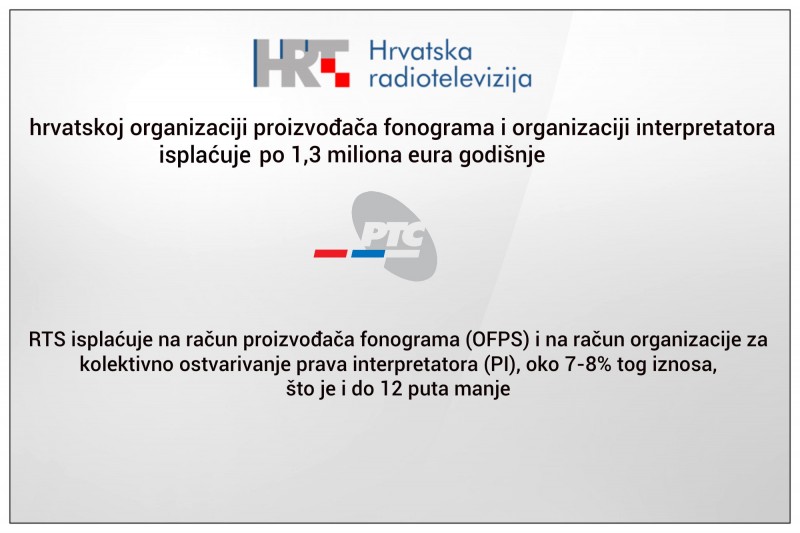
Despite fee evasion and misunderstandings regarding the rates, OFPS has a specific approach to RTS due to the fact that PGP RTS is their member with a wide repertoire. Making a comparison between the rates that HRT and RTS have to pay, Vilotić states that the Croatian public service pays 1,3 million euro (10 million kuna) to their phonogram producers organization, while HRT pays the same amount to Croatian Performers’ Right Collecting Society (HUZIP), which is a Croatian counterpart to the Serbian PI Organization. On the other hand, RTS annually pays OFPS and PI Organization only 7-8% of the mentioned amount, which is 12 times less than what Croatian television pays.
Speaking of the upcoming process of the alignment to the EU Directive, Vilotić pointed out that the focus should be on the collective organizations supervision, as well as on introducing more efficient legal measures that would come at handy to the organizations. “The point is that there should be more supervision coming from the Intellectual Property Office, which so far couldn’t have been done properly due to the lack of human resources. In addition, the EU Directive extended the period of phonogram owners’ copyright protection from 50 to 70 years, which is highly important for phonogram producers. Since public announcement fees are currently charged joint with SOKOJ, we expect that the new changes in the law will allow us to independently charge the public announcement fees for performers and for ourselves,” concluded Vilotić.
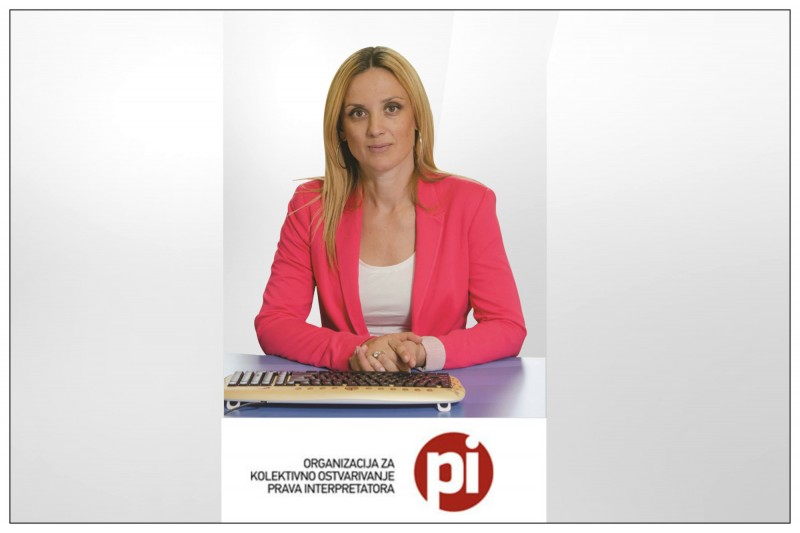
Organization for Collective Administration of Interpreters: Digitalization in the grey zone
Apart from OFPS and SOKOJ, the third organization involved in the Copyright and Related Rights protection is Organization for Collective Administration of Interpreters (PI). Speaking with the Antidot journalists, the organization’s board member, professor doctor Sanja Danković Stepanović stated that the law from 2009 would have to change due to EU membership and some evident problems that arose while applying the law. The law will be changed during the negotiations regarding the Chapter 7, where the definition of the necessary measures to reach the closure of the chapter will be the key issue. However, it is common knowledge that in order to adapt to the legal system of the EU and to follow the way of its members, amendments to the law are more than necessary. One of those amendments bearing a crucial importance is digitalization. “In this field Serbia is in a vacuum, because on one side, the practice makes it the most important element in a sense of intellectual property, copyright and related rights exploitation, while on the other side, when it comes to normative regulations it is still undefined. In 2014, the EU passed Directive 26 about to the Copyright and Related Rights enforcement, which specifically emphasizes the questions of digital, internet and cable broadcasting. Since the deadline for this law implementation was 2016, not even all the EU members managed to implement all the regulations of the directive. Serbia can only expect this adjustment in the upcoming period. Though Serbia is relatively functional when it comes to legal regulations, when it comes to this Directive adjustment we are severely falling behind. So far we have an announcement that there will be some amendments to the law and within the preparations for their enforcement we expect a public debate. In order to reach the closure of the Chapter 7 these amendments are crucial,” stated Sanja Danković Stepanović.
Our interlocutor points out that the directive related to the collective rights will be agreed on the last, simply because Serbian legislation at this point is not in accordance with this act and the estimated deadline for this to happen is the end of 2018. When it comes to the role of RTS and illegal content broadcasting on the digital platforms, our interlocutor stated that PI Organization has a problem with the Public Service which is still being solved. “During the starting period the arguments to justify the fee evasion were that it was too much money, that they couldn’t pay for it and finally that they didn’t want to pay for it because they believed they did a performer a favor by playing and broadcasting their track on RTS. That was an outrageous argument. The other was that they didn’t have money (because they were not financed from the budget or from the subscriptions.) Those are the old arguments. For a few years all the organizations together negotiated with them. The fees greatly increased, so we made an overview in a sense of reprogram by which a part of the debt was written off, as confirmed by all our assemblies, while they promised to pay a part of it. That was projected on a multi-year payment calculation with the promise to pay regularly in the future. However, after the first agreement being settled, they started paying, but the dynamics of it still varies. Sometimes they pay, sometimes they don’t, and so we will have to send a pre-litigation notice for the debt,” said Stepanović and added “This refers to the classic broadcasting. As for the digital, we are just about to enter that zone, so this is where we will see how much RTS truly owes. They are the biggest broadcaster and logically, we are speaking about the biggest funds, but on the other hand, they are the public service and should precede some other commercial broadcasters who pay regularly. At the beginning, there were problems with the commercial broadcasters too; some of them were regular, some weren’t, some had realistic problems (RTV), so they tried and entered the fee system, so nowadays have much less of those problems. The awareness of the legitimacy of the fee simply increased, with the help of lawsuits. Nobody denies the existence of the rights anymore, though in the past that was the case too,” stated our interlocutor.
When it comes to the fee charged by the collective organizations, it takes part in two different tracks, though PI Organization believes that the existing unified payment is more practical and in the best interest of the users, who do not have to separately negotiate with all three organizations (authors, performers and the producers of the audio recordings). “There are a few payments done in different ways. The first group is broadcasters who we charge together with OFPS through joint payment and joint rights protection. On the field OFPS does it by a network of representatives who collect the payment. When the funds are collected and expense is cut off, each organization gets 25% (authors get the remaining 50%). Once the contract has been signed with broadcasters, it is automatically renewed every year and it is an established regime. Sometimes there are deviations, e.g. change of a broadcaster’s headquarters, which is obliged to duly notify the collective organizations about any changes that could be regarded as deviations,” our interlocutor pointed out.
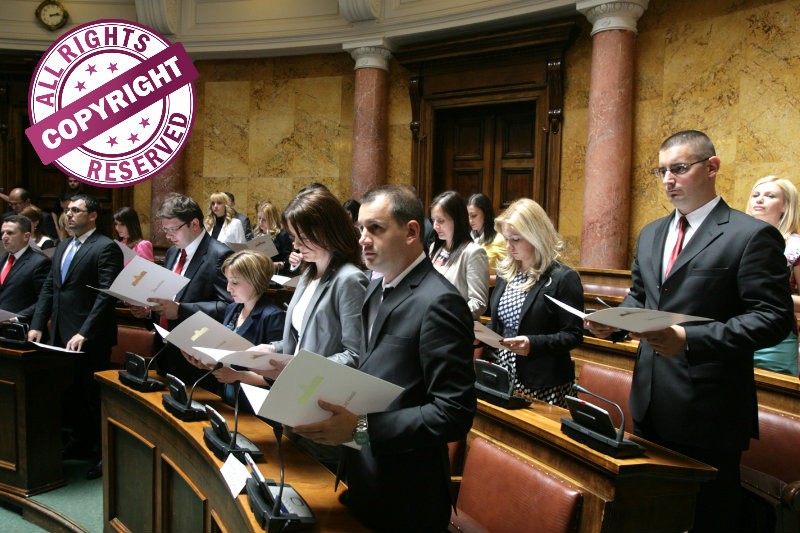
“When it comes to public announcements for the catering facilities, it would be in the best interest to unify the payment that would include SOKOJ as well. There is a third category of a special fee first established by PI and related to audio recordings suitable for a musical performance or a track. The payment from the caterers on the behalf of all three organizations is gathered by SOKOJ which functions really well,” specified Danković Stepanović.
The organizations have joint assemblies-the councils that coordinate the joint activities and legal teams. The organizations are legal personalities and have their own independent authorities. The all three organizations’ activities are supervised by Intellectual Property Office. They have to deliver financial reports while the Office has the right to participate at the meetings of the organizations’ boards (assemblies and boards of directors).
Pointing to the defects of the existing regulations that excluded craftsmen from the fee payment, Stepanović stated that in that sense the crucial factor is the timing of the Serbia’s entry to STO. When the craftsmen will start paying for this fee is determined by Serbia’s entry into this organization.
“On the field of Copyright and Related Rights enforcement and protection, there are interested individuals, discographers, collective organizations (apart from the ones who explicitly excluded themselves) and users. In this triarchy there are many challenges. In general, at the level of PI Organization there are no open questions, while in the case of SOKOJ these are becoming more frequent and are usually related to fee collection and its distribution. In the case of discographers (OFPS), there is more unity as well since we are talking about commercial organizations that are relatively easy to negotiate with,” she said and added that unlike the payment collection and its distribution, in the case of PI there are many open questions in the sphere of Copyright and Related Rights that are related to the status of the performers and artists, such as pension and payroll taxes. Organization for Collective Administration of Interpreters also gives attention to the labor union questions, such as the existing amendments in the Law on Culture preceded by the passed Strategy.
“During the public debate, PI organization will vouch for the protection of the domestic authors and performers, as the majority of European countries do, and we hope to achieve at least 50% of the domestic authors’ works being broadcast. After Strategy is passed, the organization will take part in the process of passing a law which will protect its members’ interests. PI also supports the production of works of national importance which is coordinated by a special assembly that gives recommendations to the board of directors,” said Danković Stepanović.
What is crucial in the PI Organization activities is fee collection and its distribution. In this aspect of their work there are rates, distribution plans, regular financial reports, a reviser that controls them, which apart from guaranteeing legality, also guarantees legitimacy.
Our interlocutor points out that the existing law gives digitalization a chance though this sphere is not still developed with enough details. “There are special contracts with cable broadcasters and that is how things have worked so far. But a detailed plan, matching the level of EU Directive is something that has to be passed into law. The Directive offers a possibility of one country having an organized and protected broadcasting whose principle is automatically adopted by all the other countries on the basis of rebroadcasting. This principle is a federal system (since the EU is a kind of a federation with a unitary organization), because when you do something in one country, all the other countries have an example of how the exploitation of the idea will be performed. It means that if someone from Luxemburg wanted to adjust broadcasting there, they wouldn’t have to look for bilateral agreements, but instead (if the Directive enters the domestic law) they would have a unified principle no matter which country is called on first in the whole system. This is a territorial principle that matters a lot,’ says the expert associate from Organization for Collective Administration of Interpreters.

It is very important to emphasize that the collective organizations will have to adjust their practice in the sense of not only the constitution and exclusivity but also in the way they will make the data accessible to other consumers and organizations for the sake of the process of adjustment with the European directive. This is partially regulated by law, however additional changes will have to be made. “The principles of management will be discussed- if the management will stay influenced by the association of citizens since this could be the capital association, collective organization or a limited liability association which could have a corporate management. Those are all potential possibilities. The directive is the mandatory act. However, within the collective realization it allows you to choose between 5 different scenarios. This results in complete lack of freedom and concrete obligation” Stepanović stated.
Speaking of arrangements with the cable operators which have been prevailing the obligation of rights reserved fees, she emphasizes that this was the most challenging topic within the negotiations on the tariffs as those are the most profitable elements. The first step within the cable broadcast was not regulated properly. “What will have to be specified in the next year or two is the constant appearance of different digital content exploitation which doesn’t consider the present shape. The next year or two are essential for the normative establishment” Stepanović emphasized.
She added that Slovakia and some other countries are in delay with Directive 26 regulations adjustment. “Our issues are based on EU countries’ experiences. The most important ones, including Croatia and Slovenia. Seeing into different solutions which would be in our own interest, we consider the solutions of Great Britain and countries which are members of international organization which consolidate the protection of interpreters’ rights. Annually, we organize conferences and assemblies where we follow issues and experience of other countries. This hasn’t progressed in the sense of me presenting 2 or 3 strong solutions so far. It depends on your competition or having the possibility of the interpreter choosing it’s rights protection in addition to having only one organization. Depending on the model, everything comes down to your agreement and the protection frame provided by law”, Stepanović stated.
In our neighbor countries similar issues occur. With the exception of Serbia being in advance compared to Montenegro, Bosnia and Herzegovina and Albania. In spite of the lack of specialization, a form of court practice was established. “We have an idea which should be supported by a certain specialization which is unfortunately practiced by a small number of judges. This being a specific area together with the competition rights, it should lead to forming a circle of judges who would cover the issue and provide us with unanimous practice and procedure through repeated round table educations and specifications which would result in a certain attitude” Sanja Danković Stepanović form PI Organization concluded.
SOKOJ: Improve application and compliance with legal regulations
Unlike representatives of other collecting organizations who agreed to oral interviews with journalists of Antidot, SOKOJ provided us with written answers to questions.
When asked about the level of the existing legal regulations in the area of copyright and related rights in Serbia, SOKOJ reminded that the first regulations in the field of intellectual property in Serbia were made in 1884, which speaks of long tradition and practice. "According to all relevant opinions, the existing legislation in the area of copyright and related rights in Serbia, until the Amendment to the Law on Copyright and Related Rights from 2012 (Mlađan Dinkić, the "Musical Dinar" campaign) was at the required level of European and world legal standards. These changes were formally and, by the Constitutional Court, declared as unconstitutional, and the criticisms of the domestic and international professional public and foreign companies were numerous and loud even then," it is stated in the answers we received from the Music Authors of Serbia.
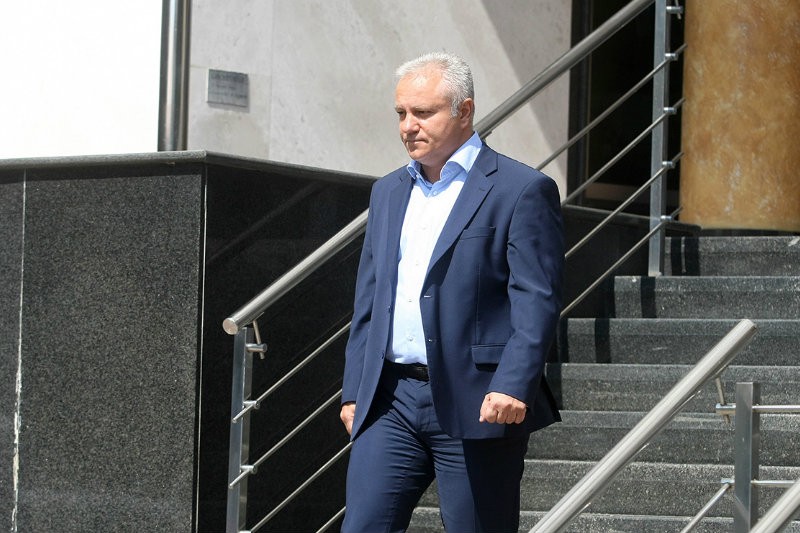
From SOKOJ, they emphasize that with the development of digital technologies the ways of using copyrighted works have also progressed. "New usage technologies require new forms of copyright protection. In this sense, the most important thing would be to increase the social significance of copyright protection, if possible without limiting the development of new technologies, which also requires continuous improvement of the collective realization of copyright. It should not be forgotten that so-called creative industries participate with more than 4% in the gross domestic product of Serbia," it is said in the answers which Antidot got from SOKOJ.
Regarding the problems that exist in practice when collecting royalties for copyright and related rights, this organization pointed to insufficiently developed awareness of the importance of intellectual property to which music belongs; insufficient information to the users about the legal obligation to pay royalties for the use of SOKOJ’s repertoire; avoidance of legal obligations by the user (failure to provide data, submission of false data, prevention of controls, attempts to avoid obligations, refusal of receipt of records and invoices) and, ultimately, failure of the competent state authorities to implement and implement laws and regulations in the field of intellectual property .
Due to violation of copyright and related rights, SOKOJ filed several thousand lawsuits in 2015 and 2016. Although, as a rule, SOKOJ receives litigation, the organization warns that the proceedings go on for a long time, but also that there are no specialized panels and judges for dealing with this matter, while public prosecutors do not know enough about the subject of copyright.
Regarding the monitoring of the broadcast content of the broadcasters, we have a confirmation from SOKOJ that it is done through internal control, monitoring by engaged employees and insight into the images of the Regulatory Authority for Electronic Media (RRA). In all cases of irregularities detected, SOKOJ addresses broadcasters with a request for correction of observed irregularities within the deadline and submits applications for economic offense in case of non-compliance with legal obligations. The final negotiations for engaging foreign company, specializing in the automatic audio recognition system for broadcasting music, are already underway, which is already monitoring for organizations in other countries, with the aim of introducing systemic monitoring of the usage of the repertoire.
In the part concerning the manner of regulating the issue of collection of copyright and related rights for content broadcasted through digital platforms from SOKOJ, they indicate that, according to the law, the broadcaster who owns the digital platform, besides the obligation to pay compensation according to the broadcasting tariff, has an obligation to pay the fees according to the applicable tariff for internet and mobile services, which is a special obligation. In this organization, however, they point out that for other platforms, taxpayers are compensated by the owners of these platforms. In this case, for the use of SOKOJ's repertoire on YouTube, the payer is Google as the owner of YouTube, and not the person (physical or legal) who raises content on YouTube.
Finally, SOKOJ concludes that key issues in the field of copyright and related rights do not emanate so much from the deficiencies of existing regulations, but from their inadequate application. This is due to insufficient staffing for their implementation, as well as insufficient cooperation between the public and private sectors. This organization also points out that better enforcement of regulations should be ensured as their faster and easier changes in line with the development of technologies that would prevent new types of piracy.
Rodoljub Stojanović: New legal solutions to enable more efficient judicial protection of copyright
Describing the current situation regarding the respect of copyright and related rights in Serbia, the Secretary General of the Union of Discographers of Serbia (UDS), Rodoljub Stojanović, points out that almost all broadcasters violate copyrights to a greater or lesser extent. "It is important to point out all possible violations of the rights that exist. At present, there are almost no media in Serbia that do not violate copyright. This is because there is a certain type of need for music editors and TV owners who think that by signing a contract with SOKOJ, all rights issues have been resolved. This, however, is only one part of the right to broadcast music. The problem arises when we come to the question of where they are entitled to play a certain number. In order for them to release a certain number, it is not a problem to get that track from a certain record house and to broadcast it. This can be obtained by placing the rights of authors, producers and performers through SOKOJ, OFPS and PI," Stojanović said.
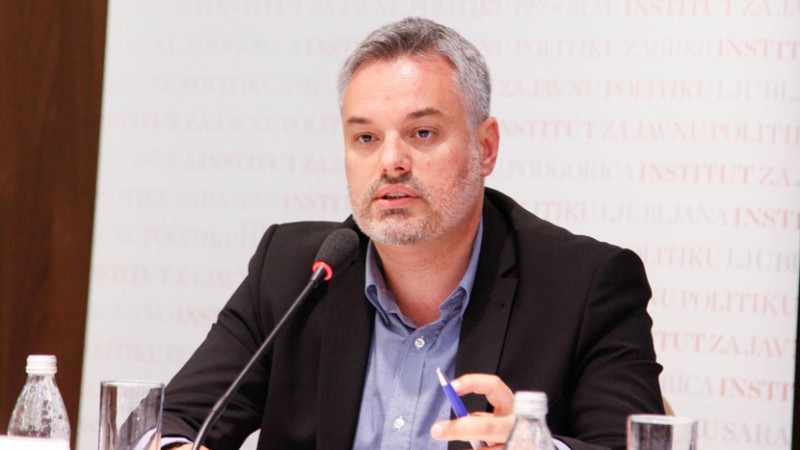
"The moment when any broadcaster takes some music, it is put through its show, it is cut and it made into something else, it is subject to another kind of right - the right to permit of editing. There is a violation of the rights by almost all broadcasters in Serbia who need to obtain a license for this. We are now on the right path to reach an agreement with Pink on a blanket licensing that implies that they do not have to look for a particular license for each particular song. In that sense, Pink is more advanced than, say, the RTS, which, on this issue, is still waiting for something," said UDS Secretary General.
Stojanović stressed that progress has been made in recent years in this area, although much remains in the gray zone. He states that as far as the legislation itself is concerned, it fully protects any kind of processing of the copyrighted work that falls within the unity of individual rights of each author that he can protect individually or through his publisher. "There also needs to be a distinction between a discographer dealing with the printing, distribution and marketing of music and publisher that protects text, music, and notary records. If the author protects his rights then the broadcasters should contact each author individually, which is hardly feasible in practice, and because of this, there is a common practice in the world that these rights are realized and protected through collective protection, that is, the organization of authors, performers and producers of phonograms. Authors have the right to authorize or prohibit the broadcasting and use of their works which are contained in the right to process the work. If, for example, Goran Bregović wrote the music and lyrics for the song, and performed by Zdravko Čolić, Bregović can at any moment sue the broadcaster if he, without permission, cut it out and pull it through the advertisement, or used it as a background music within some emissions. Zdravko Čolić, as a performer, at the very moment when the work was recorded and published publicly. no longer has the right to prohibit the broadcasting of his interpretation, but is entitled to a fair compensation. If the work, with the permission of the author, is cut out and used within a certain show, for broadcasting it a fee will be paid to SOKOJ, but at a much lower rate than is the case when using the whole original song," Stojanović specified, some, for the general public, lesser known segments in relation to copyright and related rights.
Speaking about problems that arise in the field of application of copyright and related rights protection in Serbia, our interlocutor pointed to the problem of the mechanism of collection and sanctioning of copyright violation. "In the field, we have a big problem because the disputes last for a very long time. In 2009, we had one of the most modern laws, but in 2012, Mlađan Dinkić initiated changes of the laws from political interests by removing some mechanisms that we had for efficient collection, while at the same time he excluded craft activities from the law, thus privatizing property of one number of citizens gave it to some other citizens, which is legally unacceptable. As for the craftsmen themselves, it is for the authors and right-holders to decide whether they will or will not help certain traditional crafts, but the state cannot afford the property to be compared to the interests of a party in power. According to some surveys, the state has lost about 20 million Euros solely from taxes in 2012. The creative industry contributes to GDP from 4.6%, which is more than the share of the banking sector, which is much more protected by existing regulations and laws, "he said, pointing out the negative consequences of the so-called Dinkić's amendments to the Copyright and Related Rights Act of 2012.

Stojanović pointed out that the creative industry of Serbia represents a potentially rapidly growing export branch for which, thanks to the activities of collective organizations and associations, there are now appropriate predispositions that are reflected both in the enabling of digital distribution of domestic catalogs, as well as in encoding phonograms and raising the domestic catalog to digital platforms . He reminded that the music industry was on the verge of sustainability only five years ago, but that it is doing business positively today, which has contributed to the suppression of street and Internet piracy, due to which Serbia in the past lost thousands of jobs.
As one of the biggest problems of the domestic music industry, Stojanović said that there are no big digital platforms in Serbia such as iTunes, Spotify and others. "There is only Deezer which is wrongly set up and conceived at the very beginning, for which he did not deliver the expected results. Instead of appealing to a wider audience, they have created a narrow circle of people to whom this service is available, which sent the wrong message and other digital services that do not show interest to come to Serbia because their market seems too small for them. On the other hand, Serbia does not have the Aple system; users in Serbia have to download their applications from Croatian servers. We constantly have national strategies on digitization, but we do not have any rationalization. Over the past 10 years, over 1 billion Euros left Serbia in order to purchase content from abroad. It is therefore important that the state realizes that iTunes and Spotify have to come, as Microsoft came 15-20 years ago. We have to have these services here. In the current digital world, large systems would pay some taxes; they would hire some people here. We, as an industry, would benefit from selling through iTunes and other services," Stojanović pointed out.
Speaking about the upcoming changes and amendments to the existing law, the Secretary General of UDS's said it was important that the new law is explicit and clear to the case law, in a way that the content owner does not have to prove ownership, but that the one who broadcasted someone else's content, has to prove where he got the rights to broadcast it, since this is the only way the court will be able to clearly recognize cases of copyright infringement. "Judges do not have the experience, they are not specialized, and this is a problem in the case law. The problem exists in the evidentiary proceedings, especially if you are a representative of a foreign company. In these cases, you are facing incredible demands from the court like for example, when they demand that Madonna comes and says that she is the copyright owner", said Stojanović.
Remarking that the problem of physical piracy is largely solved thanks to the efficient functioning of the state bodies, our source also mentioned the cases of digital piracy, which today can also be effectively suppressed with the advanced software that detect its presence on the global network. "We managed to solve this effectively as well because there are certain tools, software, that can be bought legally, and we shut down over 200 digital stores that were selling illegal content through streaming or subscriptions. They uploaded each new album of our artists on their platform, and had a subscription on monthly or annual basis. This made us huge losses. When legal software appeared, the big problem was that in Europe and America part of those rights related to Internet was not legally regulated. When they introduced these standards, it was much easier for us to deal with legalization. Coded digitalization of domestic content, made it easier for the software to recognize the property and in cases when there is none, the internet service provider is required to exclude the website that offers prohibited content", explained Stojanović.
Speaking about the scandal with RTS YouTube channels and copyright infringement, which occurred by broadcasting content through these channels, Stojanović said that this is a truly serious scandal. "This is a big problem. Not only RTS, but all of them as large broadcasters, have a problem with thinking that with the arrival of Youtube and digitalization, they regulated all the rights. It all depends on the education of editors. They found themselves in a mess of court proceedings. Some were won, some have lost against the rights holders. They all have a contract with KVZ, through which they monetized the content, until the lawsuits began. I think that RTS mainly solved these issues. The problem with RTS is that a new tariff should be determined, so they can pay fees according to the new tariff, which they refuse. With the arrival of digitization, we realized that we have a problem of the lack of knowledge or willful infringement. The law must be clear and explicit, so that I don’t have to prove I am the owner, but the one who has violated the rights, "said Stojanović.
He recalled a serious scandal that the holders of copyright and related rights had with Telenor a few years ago. "Telenor took the song of one Islamic singer, underlined it in its advertising campaign and regularly uploaded this commercial on YouTube. E-mails with the question who sold the rights to this song arrived to mine and a few other addresses. Since no one did, we sent a joint letter to Telenor with the question: Gentlemen, where did you obtain the rights? They answered that there were no problems, everything is fine, everything is legal and they scanned the contract, sent it to us, and it turned out that a firm, an advertising agency from Pozarevac, sold the rights to Telenor for 3,500 euros. We decided to fig further. From Pozarevac we received an answer: No, no, now we're going to refer you to the marketing agency that works with us, they have purchased these rights. Two showbiz managers, a man from a marketing agency, one man from Telenor - each of them took 1,000 euros, and gave the agency 500 euros to make false papers that they own the rights. Telenor eventually paid 50,000 euros penalty for this, and a marketing agency that worked with Telenor lost a contract worth several million euros annually because they did not control the process", said Stojanovic revealing the details of this little-known case to the general public.
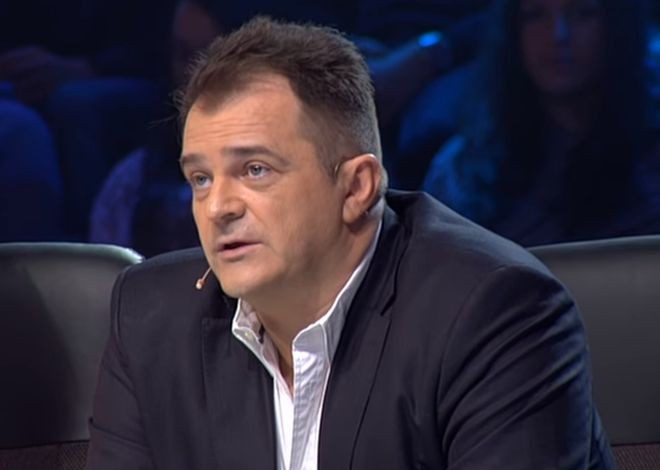
Brajovic: Eight years of RTS’s refusal to pay is a precedent in contemporary Europe
One of the few authors who agreed to speak on the topic of protection of copyright and related rights is a famous composer Dragan Brajovic Braja, who is also a member of the SOKOJ authors organization.
Speaking about the problems SOKOJ faces, Brajovic pointed out that the most common problems are with the users. "In my opinion, there is rarely a problem with the law. It may have sometimes occurred that some changes in the law aligned with someone's political campaign at a given time, when promises were made to certain groups in order for the votes to be gained. This was the case with our law during the 2012, when the industry members were promised to be relieved of some duties. However, essentially the law is more or less in line with the European standards. The problem is in the application of the law, in the fact that most users are still not educated on what copyright is, asking questions like why am I paying you if I am playing foreign music in my bar. People simply still do not understand that collective protection means protection of all the authors around the world who are members of the CIS, 120 member countries. Education of users is important; and in this country it is not on a very high level, and all the problems arising from the relationship with the customers. We had a situation where RTS during Tijanić has not paid for 8 years, which is a precedent in modern Europe, and we had this situation, "said Brajovic.
He added, however, that since the new leadership of the RTS arrived, SOKOJ has no problems with the payments. "There is a problem with SBB, which is in the process, because it took us a long time to convince RRA to inform SBB that they are obliged to provide us with a list of their users, ie. how many subscribers they have in their cable system, which they at first refused to give as a company’s document. This is a document based on which we can determine what belongs to us. If we do not know how many users they have, according to which model are we then to act? This is a vicious cycle, there are problems, mainly related to all users. If we don’t go down to the basic level, where there are 6-7 shops in one street, three of them paying properly, two are pretending we don’t exist until the lawsuit is launched, and one literally kicks out our agent who brought them a contract”.
As for the relations with RTS regarding the placement of content across digital platforms, he points out that the contract between SOKOJ and RTS is signed at the global level, while the sphere of digital rights still in its infancy in our region. "SOKOJ made a deal with YouTube only sometime in May this year, I think these things are still vague. We do not have the problem with RTS anymore, and it is generally a contract between them and us, which was actually impeached since it was implemented in a ridiculous mode where they did not pay anything until the agreement was made. And so it took eight years. Now they are paying back the debt and paying for the new obligations. Part of the debt is partially paid off, not to talk about amounts now, but eight years piled up to an enormous amount, " said our Brajović.
Brajovic pointed out that SOKOJ should start the initiative to protect domestic authorship, because now we have the supremacy of foreign music. "We are facing a battle to protect domestic authorship in order to avoid the Romanian or Polish scenario, in which 67-68% of the money earned on copyright goes abroad. This scenario should not be allowed in Serbia. It is not enough to hope, we must work to make it that way. There are various models, for example, the French model. You can always make a strategy that you'll place into a legal frame to protect domestic authorship, and when Europeans tell you the Directive is such and such, you say my laws provide certain limitations. I do not know why we behave like bigger Europeans than Europeans, when's the big question is when and if we will ever be members of the EU ", concluded Dragan Brajovic.
Marić: Broadcasters still more powerful than Collective Management Organizations for Protection of Performers' Rights
The Intellectual Property Office is a state institution, which is responsible for implementing the Law on Copyright and Related Rights and supervision over collective organizations. In the interview for ANTIDOT, Director of the Institute Vladimir Marić said that with regards to the harmonization with the EU standards, Serbia stands really good, and this can be seen in the recent European Commission report which says that the Serbian law in this area is largely harmonized with the European directives. "We are now in the process of making amendments to the law, which is in alignment with 8 of the 10 directives. We still have to align with the Directive on collective rights management and multi-territorial licensing of rights in musical works for online uses, and another one the so-called. Abandoned works. To a large extent our law is already aligned with this directive, in some segments should be further amended in terms of voting at general meetings of organizations, their costs, on the revision of their annual fee calculation, the distribution of money within the organization for the collective management of copyright and related rights, "said Marić.
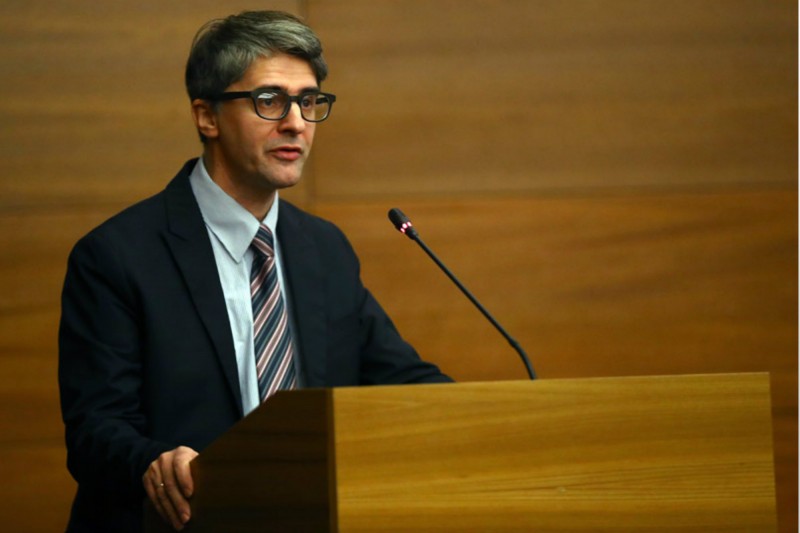
According to him, one of the most important things is the question of exhaustion of copyright and related rights. "This is a conflict between the so-called actual ownership rights and intellectual property rights. The law says that the author is exclusively authorized to put his or her own work of art on the market. The law says that once the subject protected by intellectual property is put on the market, copyright is being exhausted. The author cannot prevent the new owner to further place the subject on the market. The question is, where this right exhausted? Under the current law, it is exhausted on the territory of Serbia. We need to change this provision of exhaustion so that it is not of national but regional character, "says our source.
Marić said that the significant change concerning the protection of copyright in our country refers to software, computer programs, databases, cable retransmission and satellite broadcasting. "The actors will get the right to compensation, this is very important, from broadcasting and rebroadcasting of their performances, which are recorded on a physical carrier. This is a kind of inconsistency, since this law only protected the performers whose interpretation was recorded on audio carriers. The actors will now be able to exercise this right if they form their own organization for collective management of copyright, "said Marić.
Speaking about the issue of regulation in the field digital broadcasting, he pointed out that before the arrival of the Internet as a global medium, broadcasting and retransmission existed in a form of copyright work, which is actually (according to the Rome Convention), the public communication of works or objects of related rights wirelessly into the ether, from broadcasters to users. This basically meant the use of copyright work, and a paid compensation for it. "The way the Internet is set up could not be subsumed under the provisions of the Rome Convention and therefore it was not a form of exploitation. Then it was said, that a special form of exploitation is the co-called Interactive Communication of the work available to the public. In this case a song is placed on the server, with a link to the user, the user is then connected through an operator and can download or stream songs. The author was not able to charge, until registered in an international treaty. Then we took this over. Whenever someone puts a song on the server, they have to obtain the rights. He does not have to obtain that the rights from every composer, singer ... he goes to the organization (SOKOJ, OFPS, PI) and says “I want to acquire the rights of your members through a single contract”. When SOKOJ signs the contract, the content can be put on the server and broadcasting is allowed. This activity requires an adequate compensation. The legal basis for it exists in our country. The problem is in the everyday practice, in the fact that those who negotiate these things are very powerful individuals, and they impose their conditions, which are not favorable. These contracts are secret, and they should be transparent. For the moment, these fees are modest, but things are starting to improve. This should become the most important source of income. At this point, public communication is the most important. But there's no reason that the exploitation on the Internet becomes important as well"said Marić.
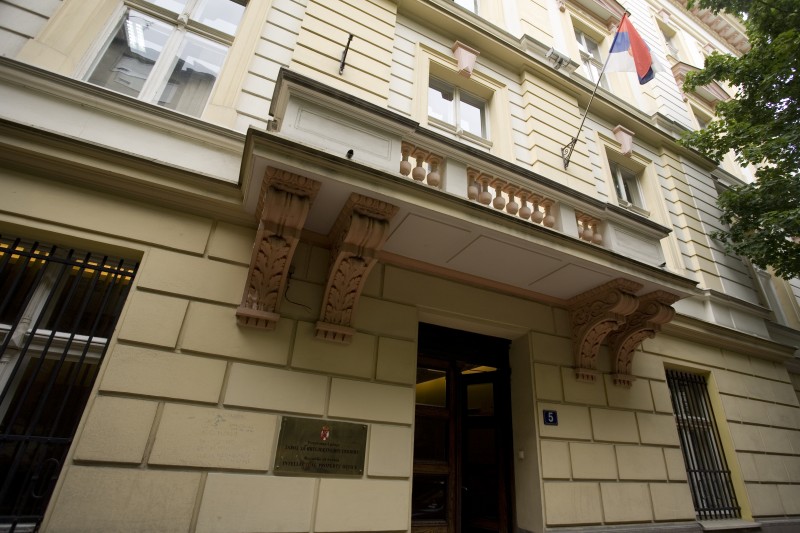
According to Marić, Serbia should fully harmonize the Law on Copyright and Related Rights in the middle of next year. In terms of efforts to implement and protect the rights, Marić said that Serbia has significant results in the field of control of legality of software, which led to a reduction in piracy in the region of 9% in the last 2 or 3 years. From 3,000 examined computers in 82% of cases of those who had illegal software, owners have purchased the legal one.
Guide to the Copyright and Related Rights: Glossary and General Information
Intellectual property is a common name for industrial property and copyright. Intellectual property law, as a separate branch of law, was developed in the late 19th century. It experiences a big rise between the two world wars and with the development and expansion of information technology new forms of protection were being introduced. (M. Drakulić, Fundamentals of Business Law)
Serbia has a long tradition in the field of intellectual property. Back in 1883, Serbia was one of the 11 states - founders of the Paris Convention for the protection of industrial property rights. The first copyright law, the Kingdom of Serbia adopted in 1929, and in 1930 signed and ratified the Berne Convention for the Protection of Literary and Artistic Works, which is the international basis for copyright. (V. Baltezarević, Law and intellect)
World Intellectual Property Organization - WIPO was established in Stockholm in 1967, and it determines what falls within the intellectual property rights: literary, artistic (art) and scientific works, artist performances, phonograms and broadcasts, inventions in all fields of human activities, distinguishing marks (trademarks, designations of origin), industrial design (design), protection from unfair competition, scientific discoveries.
Serbian Parliament adopted the Law on Copyright and related rights on 3rd September 2009. Copyright protection also includes moral rights, which among others include the right of authorship, the right of opposition to changes of work that could harm the image and reputation of the author. The exclusive nature of this right means that its owner is in a position to decide on the granting of the a permit or prohibition of the execution of any actions contained in its law, that is, the owner of this right has the authority to determine what can be done with their work, under which conditions and with a certain compensation. According to the current treaties of the World Intellectual Property Organization (WIPO), property rights last throughout the life of the author and 70 years after his death.
Prevention of unfair competition is related to the prevention of acts or practices in trade and commerce, which are related to economic competition, and which are contrary to the good business practices, and economic, legal and ethical standards of behavior in this area. Rules to prevent unfair competition should ensure the efficiency of the market economy by providing conditions for free competition, the application of ethics in business and protection of consumer interests.
Copyright means the author’s right, that is, the right to reproduce or copy. Copyright is a known term in Europe from the beginning of the 18th century, and was introduced to control cultural production. In the tradition of continental European law, copyright law becomes effective as soon as the work is finished and in a tangible form. In the Anglo-American tradition, copyright occurs only after the work was registered with the copyright office. In the information society, copyright laws are becoming a key subject of trade.
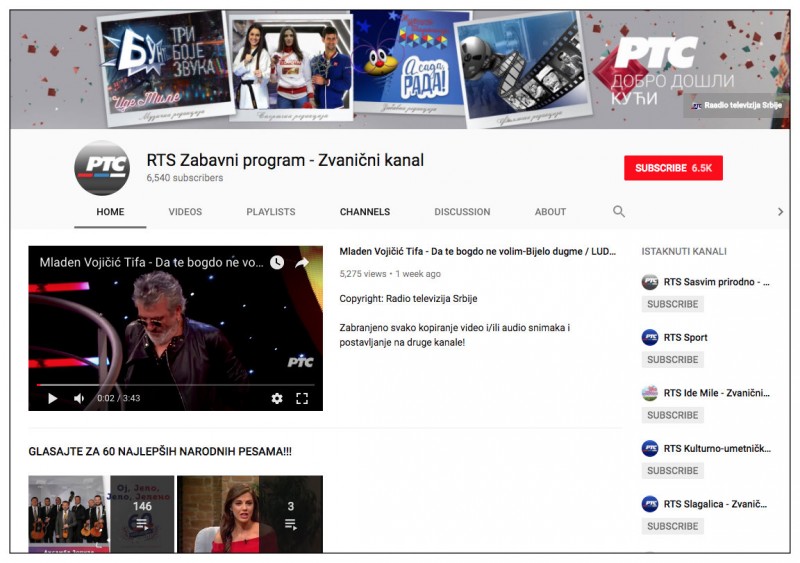
Copyleft represents the opposite of copyright, and it is based on the idea that everyone should be given an easy access to intellectual products. A work of art that is free from protection, can no longer be captured, not even by the most powerful corporations.
Work of Music represents an original work in which the author-composer expresses his/her thoughts and feelings with sound, and it consists of a series of tones harmonized in a certain rhythm. Every piece of music consists of melody, harmony and rhythm. Melody represents the content of author’s creativity, because it combines the idea of the form and a spiritual creation that enjoys copyright protection independent of the musical work. In order for a piece of music to be legally protected it must be original, reflect the author's idea and have a corresponding musical form. Author’s arrangements-variations must have the consent of the author of the original work.
The author is a natural person who created the work. The author is a person whose name, pseudonym or trademark are stated on copies of the work, or cited when publishing the work, until proven otherwise. The author of the work is the holder of the copyright. Aside from the author, the copyright owner may be a person who is not the author, but who in accordance with applicable law, acquired the copyright.
Copyright to anonymous works and works published under the pseudonym whose author is unknown, is given to the person who published it. If the publisher is not specified in the act, for the exercise of copyright is given to the person who has disclosed it. The copyright on unpublished works of unknown authors is given to the appropriate organization of authors.
Co-author is a natural person who created a work with another person. Co-authors are joint holders of copyright in a work of co-authorship, unless the law or contract governing their mutual relations states otherwise.
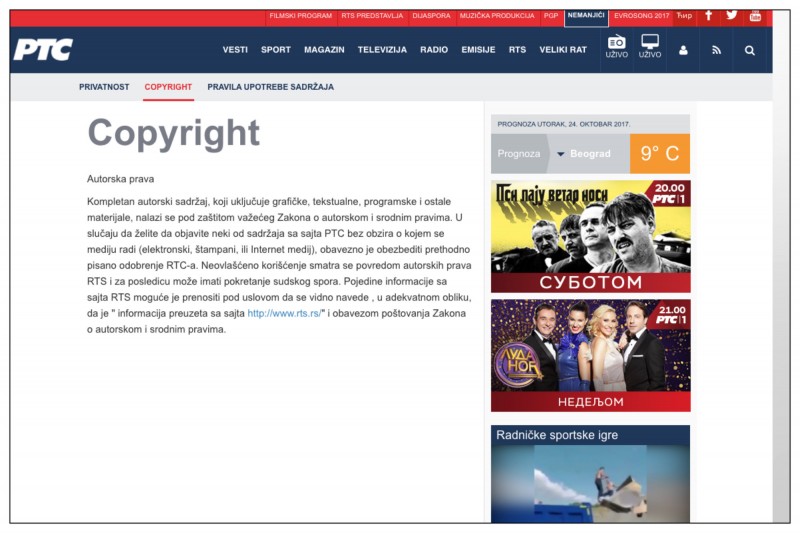
Consent of all co-authors is required for the exercise of copyright and the transfer of that right. Each co-author is entitled to file an action for the protection of copyright in a work of authorship, however these claims he/she can only file in his/her own name and for their own account. If two or more authors combine their works for the joint exploitation, each author retains the copyright on their work.
The author of the work is the copyright holder. Copyright holder may be a natural or legal person and this is acquired through the signing of a contract, according to the law or inheritance.
Besides the author, the copyright holder may also be a person who is not the author, who in accordance with the law, acquired the copyright. The author may transfer a part of the property authority to another person, in terms of the rights and usage of copyright. The transfer of ownership means that the author loses certain powers, but not the power of the authorship, since this right is directly linked to the personality and is non-transferable.
The contract that assigns copyright is called an author’s contract. Copyright can also be assigned through other named and unnamed contracts if such contracts are made in writing and contain all the necessary elements on the basis of which it can be determined which author’s work is the subject of the contract, for which the territory and for what period of time. For certain types of works, copyright holder is determined independently of the author's will. These are the works created by the full-time employed authors, or works made upon the order from a particular legal or natural person.
Property rights represent the right to exploit the work. Only the author is authorized to exploit his/her work, others can exercise this right only with the permission of the author and for an adequate fee. In addition to the rights of exploitation of the work, the author has the right to leave work on the market in the form and manner which he considers appropriate.
Property rights are:
The rights to record and reproduce work which is in the exclusive right of the author to authorize or prohibit another person to record their work on a material surface and make copies.
• The rights to put copies of the work on the market as the action of work exploitation, for which the work is multiplied.
• The rights to rent the work, the rights to give the computer program for usage, the rights to perform the work, the rights for the representation the work, rights of broadcasting, rights of public communication, rights to modify the work...
Copyright license Agreement assigns or transfers the copyright entirely. Copyright license Agreement is regulated by the provisions of the law governing contractual relations. Copyright contracts are made in writing. When in doubt about the content and scope of rights that are licensed or ceded by the copyright contract, it is considered that fewer rights are assigned or transferred.
Permission to publish the work, record the work on a sound or image, and the license for broadcasting is contracted expressly.
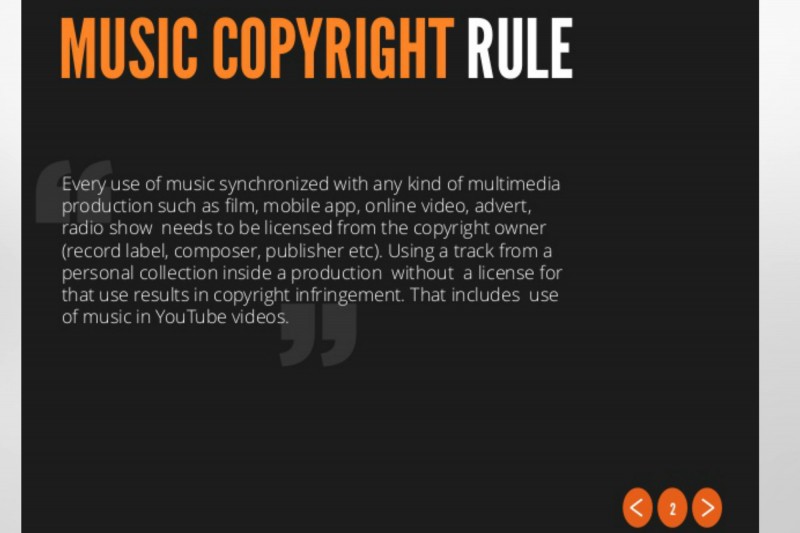 www.slideshare.net
www.slideshare.net
Assignment or transfer of rights for work exploitation does not imply the assignment or transfer of rights to remuneration in the case of exploitation of copyright works on the basis of a statutory license. Assignment or transfer of a right to exploit the work implies granting permission for such changes in the work that are technically inevitable or usual for such exploitation of the work.
Copyright contract includes: names of contracting parties, address, and identification of authorship, rights that are the subject of assignment or transfer, amount, manner and terms of payment of royalties if agreed upon, as well as content, time and space limitations, if any.
If the use of the copyright work generates profit, which is evidently disproportionate to the contractual remuneration, the author or his successor has the right to request amendment of the copyright contract in order to eliminate this disproportion.
If royalties are not agreed upon and income generated through the usage of copyright works exceeds the cost of its use, which then allows the payment of royalties, the author or his successor, has the right to request amendment of copyright treaty for contracting fees. The right expires within two years of the realization of of such disproportion, or profit made by made by the use of copyright works, and not later than six years after the end of the year in which the disproportion had arisen, or in which the income was generated.
Copyright license Agreement assigns or transfers the copyright entirely. Permission to publish the work, record the work on a sound or image, and the license for broadcasting has to be contracted separately.
Copyright contract includes: names of contracting parties, address, and identification of authorship, rights that are the subject of assignment or transfer, amount, manner and terms of payment of royalties if agreed upon, as well as content, time and space limitations, if any.
With a Publishing contract, the author or other copyright holder, licenses (transfers) to the publisher the right of reproduction of copyright works through printing and marketing thus reproduced copies of the work, and the publisher is obliged to multiply the work and put copies in circulation, and pay an adequate fee for this, if agreed, to the author, or other copyright holder.
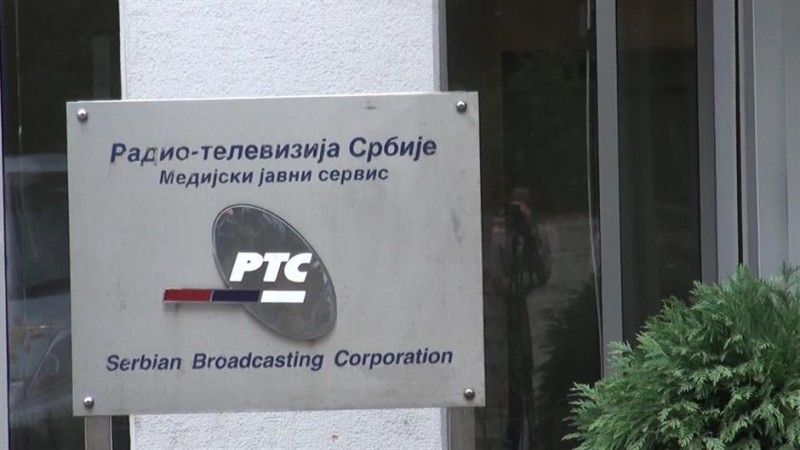
The publishing contract shall include the following:
The deadline until which the author or other copyright holder, is obliged to submit a proper manuscript or other original of the work to the publisher to reproduce the work. Unless otherwise agreed, the period shall be one year from the date of the conclusion of the contract.
The period within which the publisher shall start selling the copies of the work. Unless otherwise agreed, the period shall be one year from the date of the receipt of the manuscript or other original of the work.
Number of editions the publisher is authorized to issue. Unless otherwise agreed, the publisher is entitled to only one edition. If not agreed, the circulation is 500 copies. The deadline until which the publisher, after depletion of the previous editions, has to start marketing the copies of the next edition, if contracted. Unless otherwise agreed, the period shall be one year from the date on which the author requested it.
It is the responsibility of a publisher to ensure the sale of copies of the work, and periodically inform the author or other copyright holder, at his request. To enable the author to make corrections in the adequate stage of the multiplication process upon request, or during the preparation of the new edition process, to make necessary amendments and changes, under the condition that these changes to not infer with the character of the work itself, and with regards to the scope of the agreement, do not pose an enormous and disproportionate obligation for the publisher.
The main task of Related rights is to provide protection to specific categories of users of copyright works - to performers, producers of phonograms and videograms, Broadcasting institutions, manufacturers of databases and the first publisher of a free work by regulating their status, rights and obligations to the authors or holders of copyright regarding the commercial exploitation of copyright works.
Related rights shall in no way affect the rights of authors in respect to their work, however, almost all forms of objects of related rights also represent a form of exploitation of copyright works. Related rights enjoy a certain autonomy that is reflected in the fact that the object of protection is different. For example, the copyright covers the work itself, and the related right covers the interpretation, and other emissions. All related rights are property related, except the rights of performers, which are transferable without restriction.
For their interpretation of author’s work, performers enjoy moral rights and property rights. Interpretation is a spiritual commodity that originates from personal engagement of a performer during audio, visual, or audio-visual communication of copyright works. The work being performed does not need to be copyrighted. Interpreter is a natural person who is personally involved in the work of interpretation. The relationships between two or more participating interpreters, fall under provisions which may be related to the co-authors.
Moral rights of interpreters - The performer has the exclusive right to be recognized as such; that his name is indicated on each copy of the recording, the program or in any other suitable way during the exploitation of his interpretation, unless technically impossible; to oppose the modification of his/her performance or any exploitation of the interpretations in the altered form, if this is harmful to his/her creative or professional reputation; to oppose marketing of his/her interpretations, if the recording has technical deficiencies that jeopardize the integrity of the performance, and thus the performer's reputation; To oppose the exploitation of the performance in a way that endangers or may endanger his or her honor or reputation. If the ensemble of interpreters does an interpretation, the right is given to them as an ensemble and soloists. If more than one interpreter participates in the interpretation of a work, the exercise of the right cannot be harmful to others.
Property rights of Performers - The performer has the exclusive right to authorize or prohibit: recording of his/her interpretation, in any form and by any means; the placement of the recordings of his performances on the market; leasing of recordings of his performances; simultaneous transmission of the performance by technical devices such as speakers, screens, to the audience which is located outside the space in which he/she is performing the interpretation; live broadcasting of their interpretation; interactive performance availability to the public by wire or wireless means.
The performer does not have the exclusive right to broadcast his/her interpretations recorded and released on a sound carrier or of a performance that was recorded with the permission of the performer on CDs and DVDs. Should a performer license a producer of phonograms or videograms with the rights, he/she is entitled to equitable remuneration for the rental of the recording of a performance. A performer may not waive this right.
For their phonogram, the producer shall have the monetary rights. Phonogram is a recorded sound or a sequence of sounds on a sound carrier. Phonogram producer shall have the right under the law for the first recording. Right to the existing phonogram is in no way limited to the incorporation of that phonogram on the videogram. A producer of phonograms is a natural or legal person, who organized and paid for the production of the phonogram.
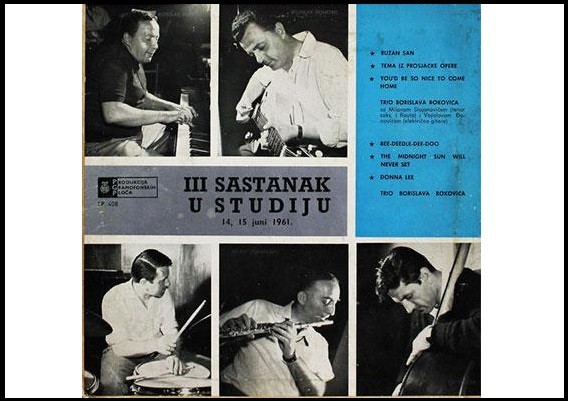
Phonogram producer shall have the exclusive right to authorize or prohibit:
reproduction of their phonograms in any form and by any means, and placing the copies on the market of thus reproduced phonograms;
The rental of copies of phonograms;
Disposal of their phonograms to the public by wire or wireless means.
Producers of phonograms shall have the right to compensation for:
- Broadcast of the phonograms;
- Public communication of the phonogram;
- Public communication of the phonogram being broadcast.
The fee is charged from the user as a single fee collected by the producer of the phonogram. If the contract between the producer of phonogram and the performer does not state otherwise, a record producer is obliged to immediately deliver half of the collected fees to the performer whose performance is on his phonogram.
The Broadcast is electric, electromagnetic or other signal converted into audio, visual or audio-visual content that is broadcast for the purpose of communicating it to the public.
Producer of the Broadcast is a natural or legal person, who has organized and paid for the production of the broadcast.
Producer of the Broadcast has the exclusive right to authorize or prohibit:
- Rebroadcasting
- Recording of his broadcast on a sound or image or sound and image;
- Duplication of the recording and market-placement of the copies of thus reproduced recordings;
- Providing copies of the recording on lease;
- Public communication of the broadcast in places accessible to the public with the admission ticket.
Enrollment in the register does not constitute copyright law. Copyright arises when the work was created, and from that moment the author shall acquire all the powers that belong to him/her as an author. Legal protection is provided both to the author who entered his/her work in the register and to the ones who did not.
Intellectual Property Office issued a permit to the two collective management organizations for protection of copyright and related rights: SOKOJ - Union of organizations for protection of copyright musical works with words and without words and OFPS - an organization dedicated to the protection of producers of phonograms, sound carriers and lasting musical recordings. The institution has the right to control their operations.
By law, local author is equal to any other author anywhere in the world, because our country harmonized regulations with all international treaties and conventions, as well as seven EU directives as of 2006.
